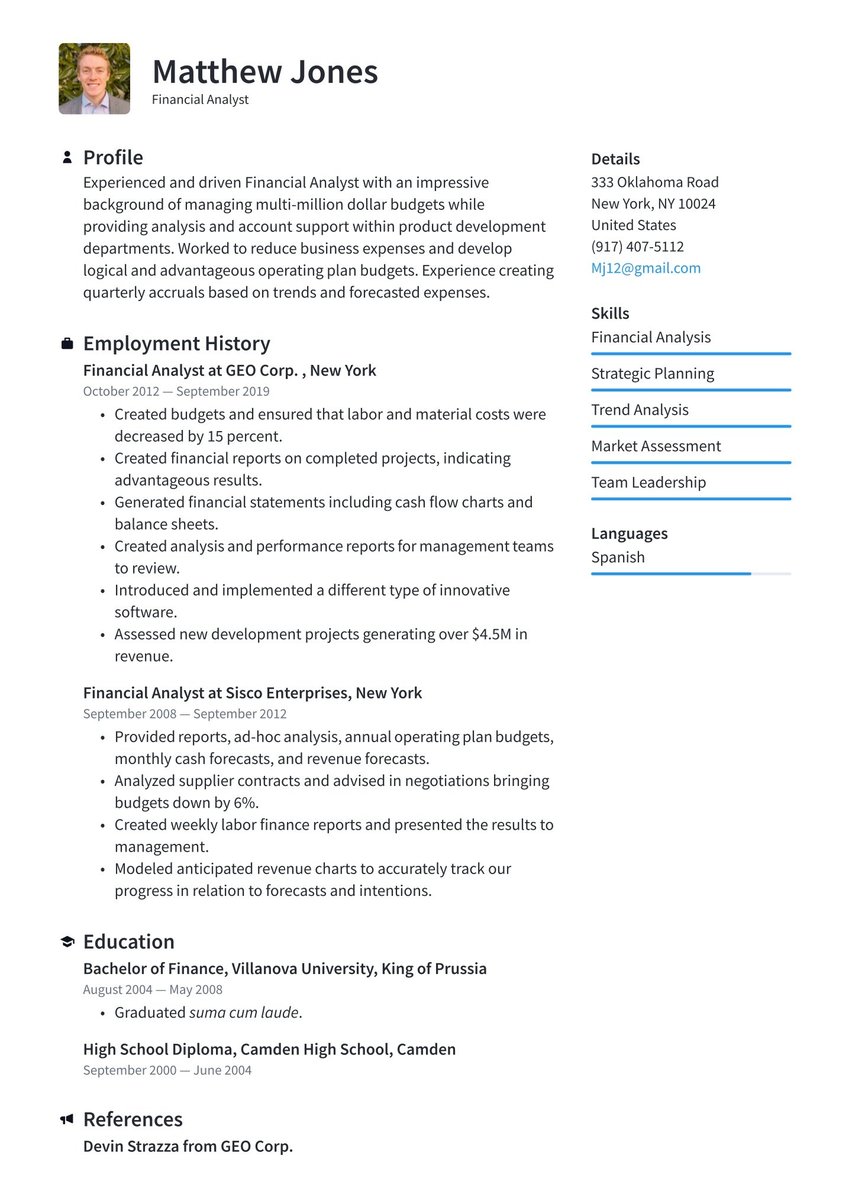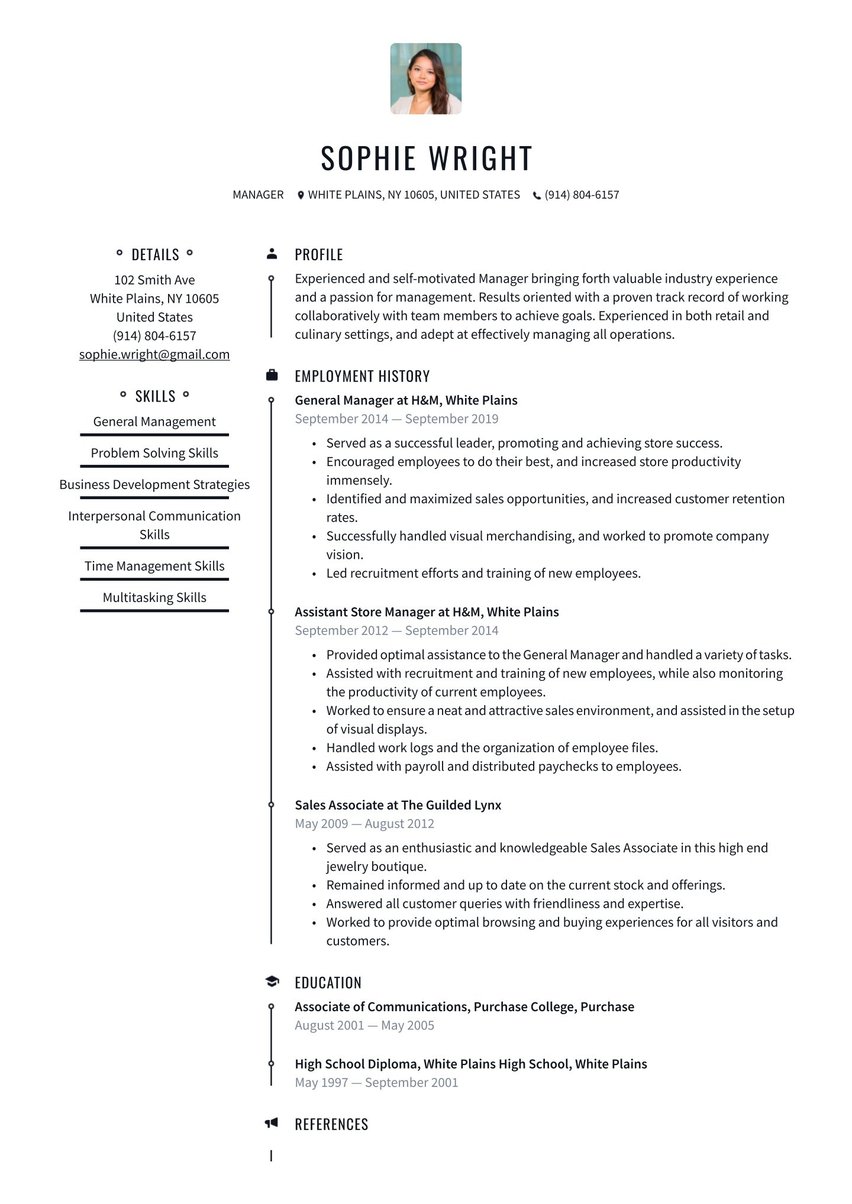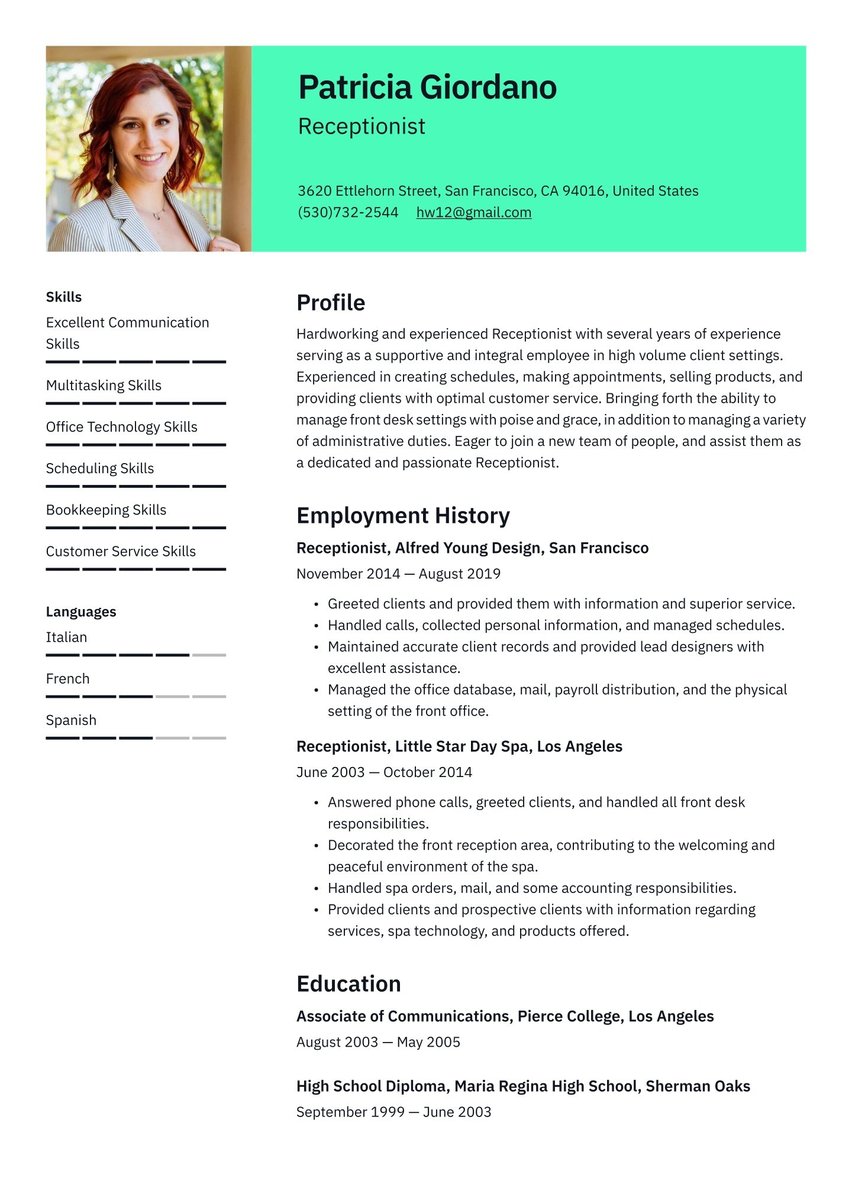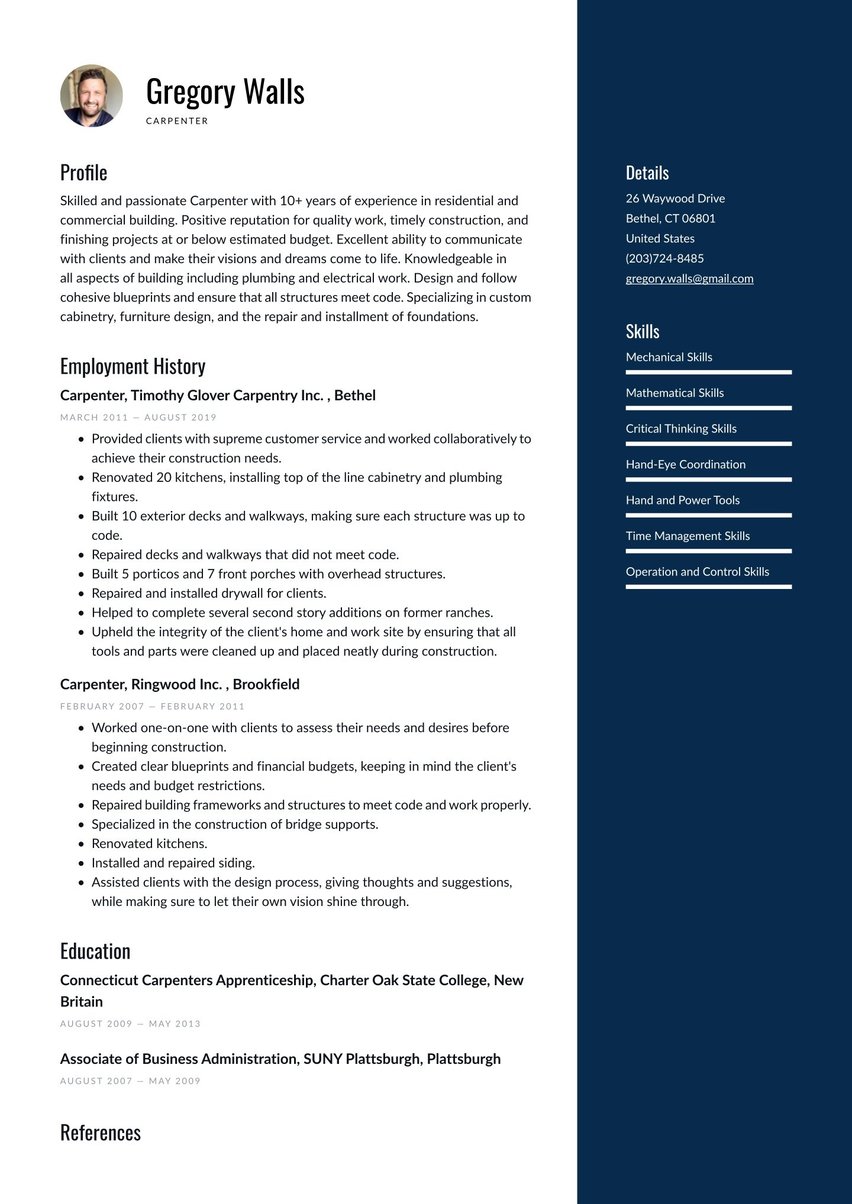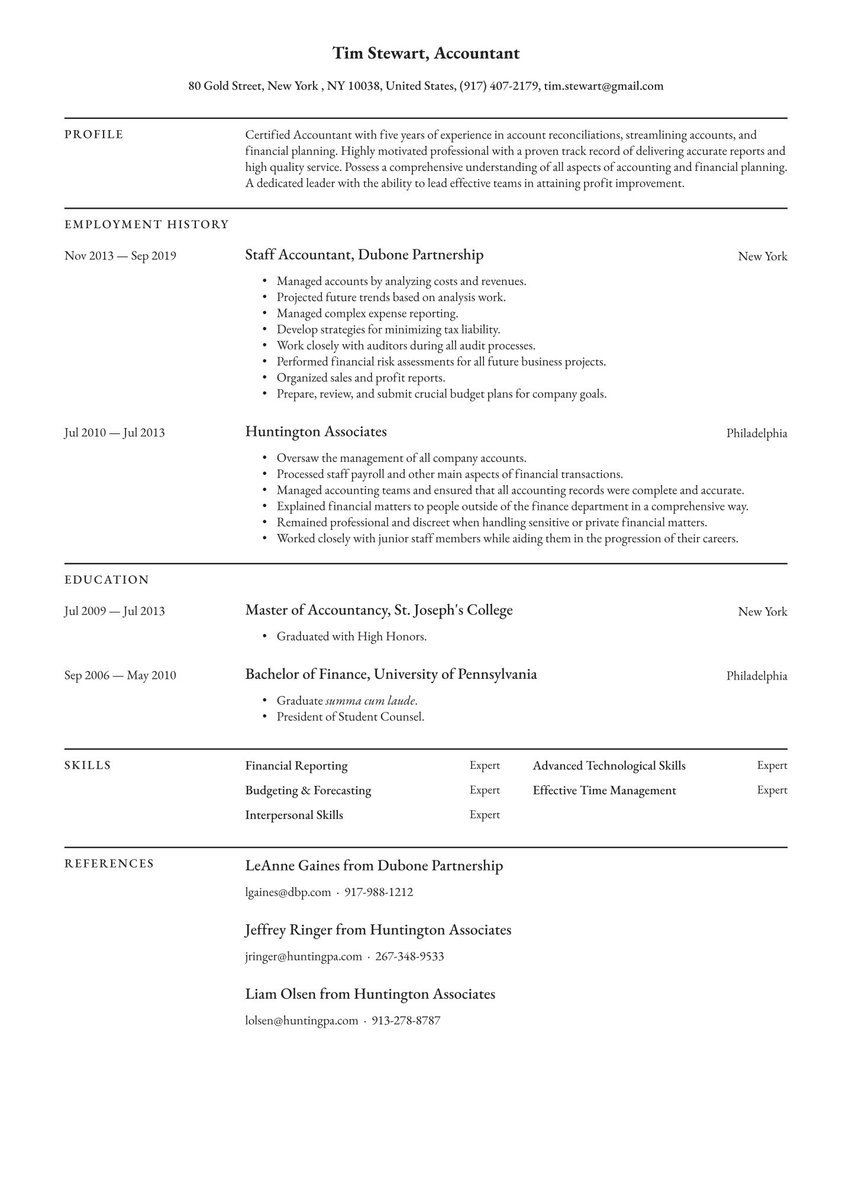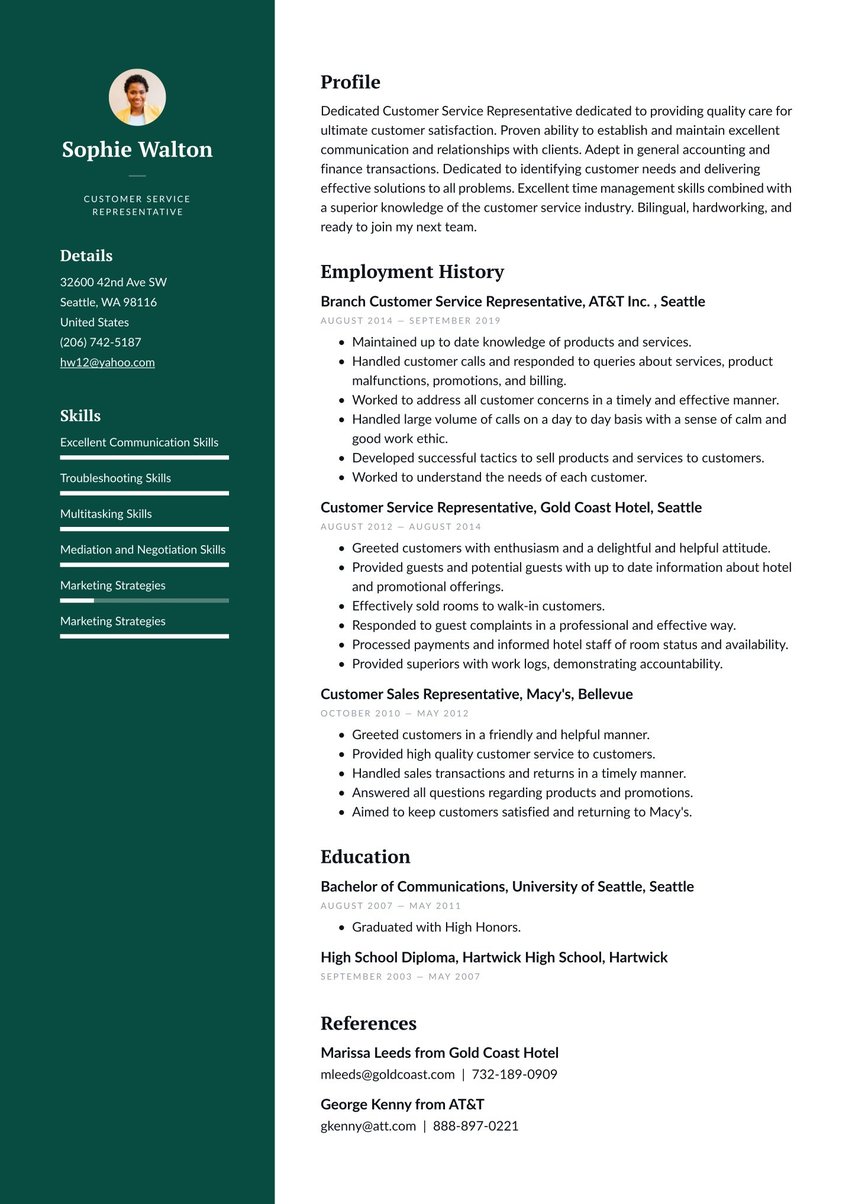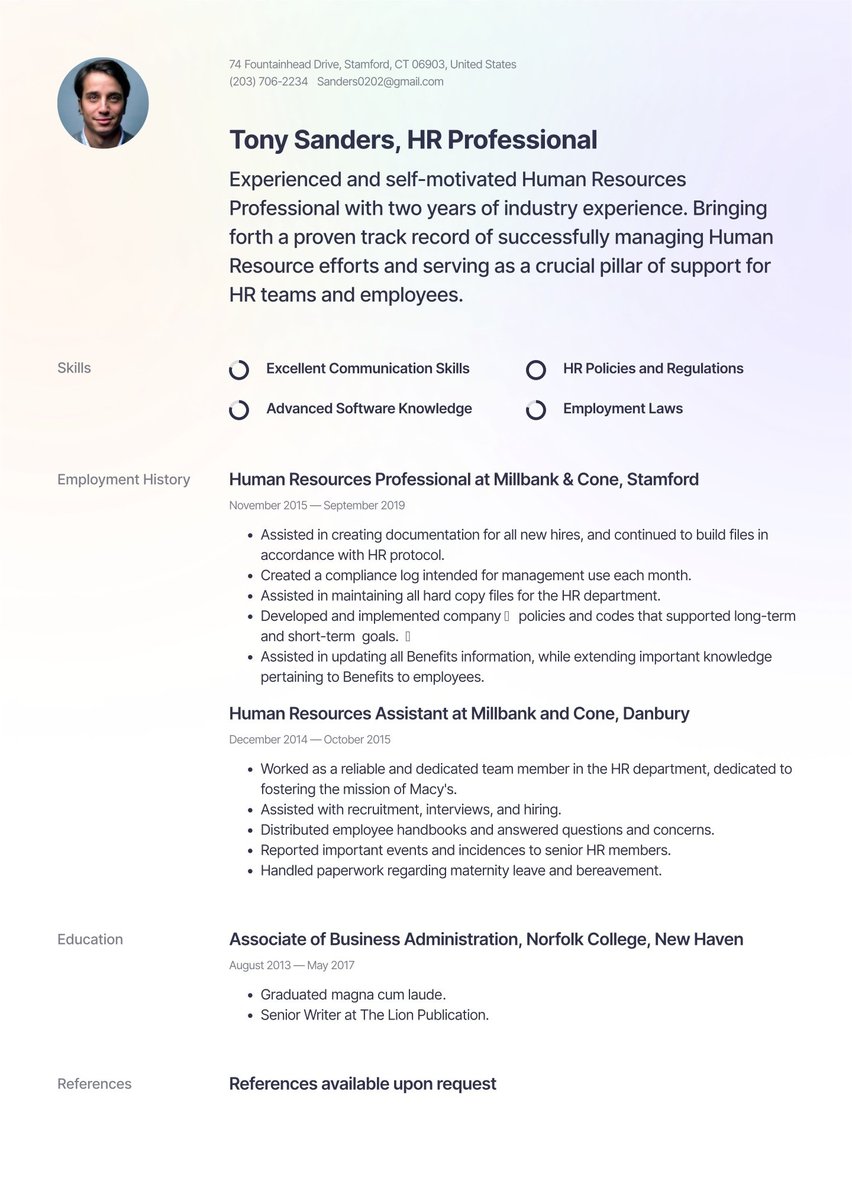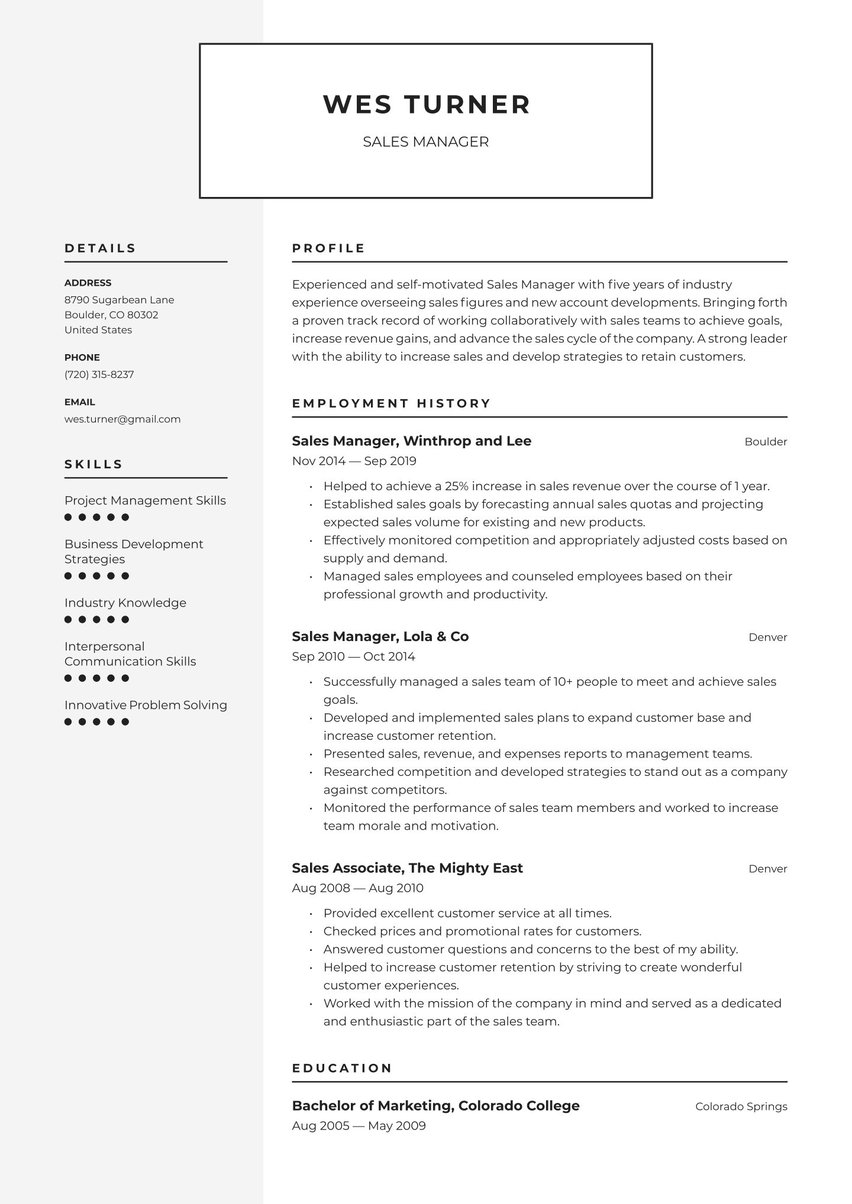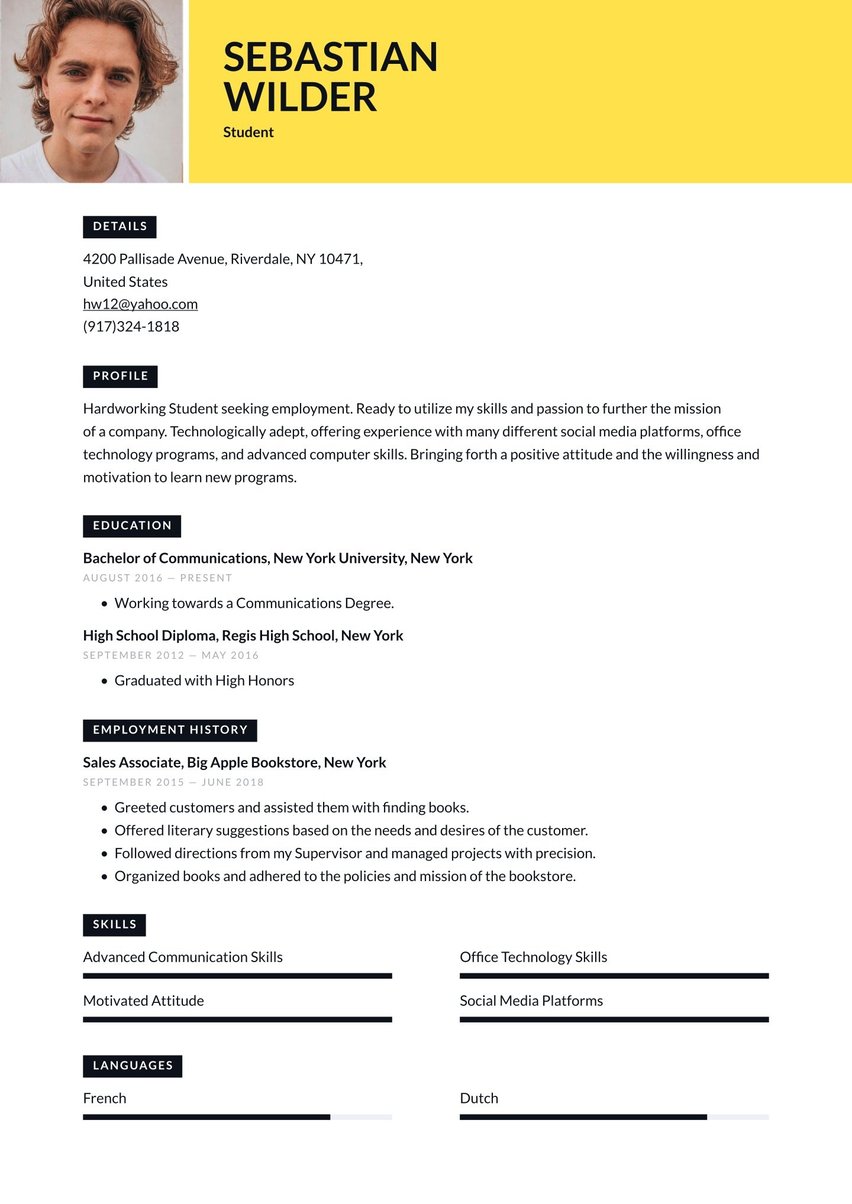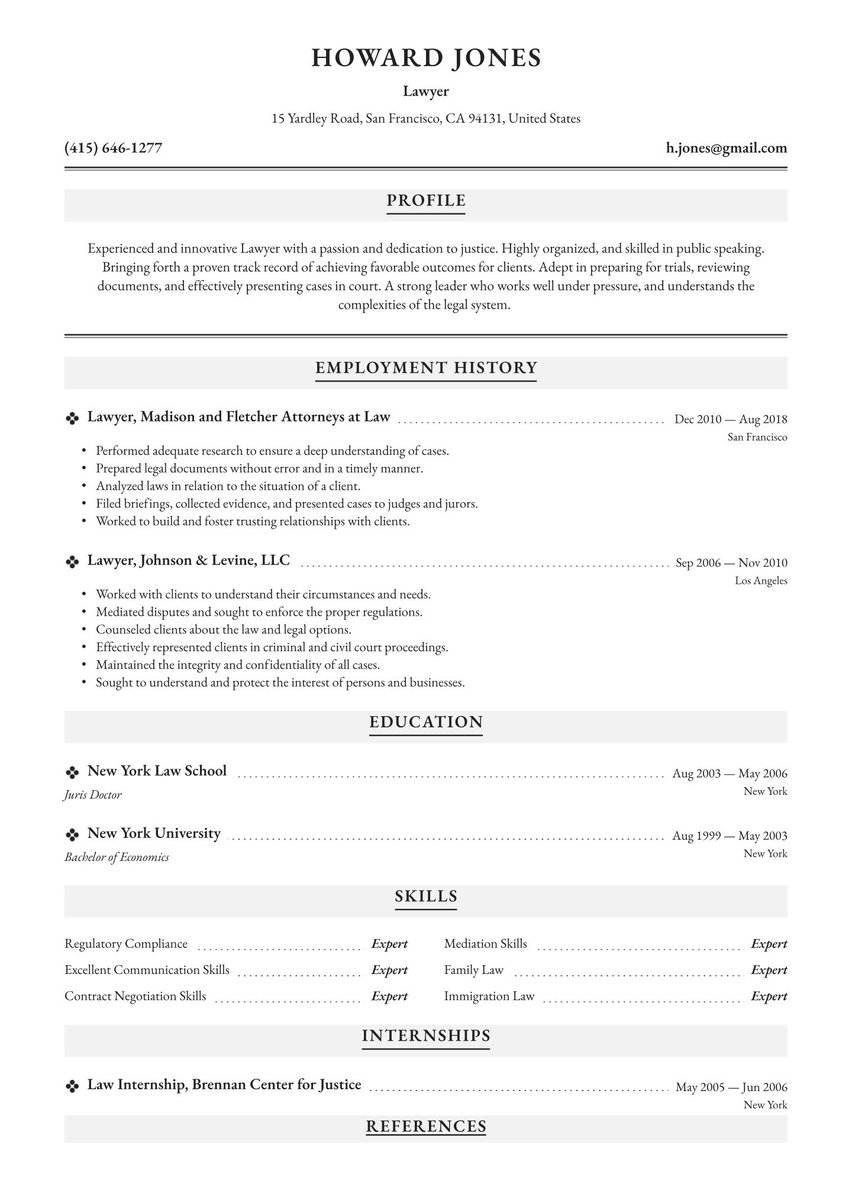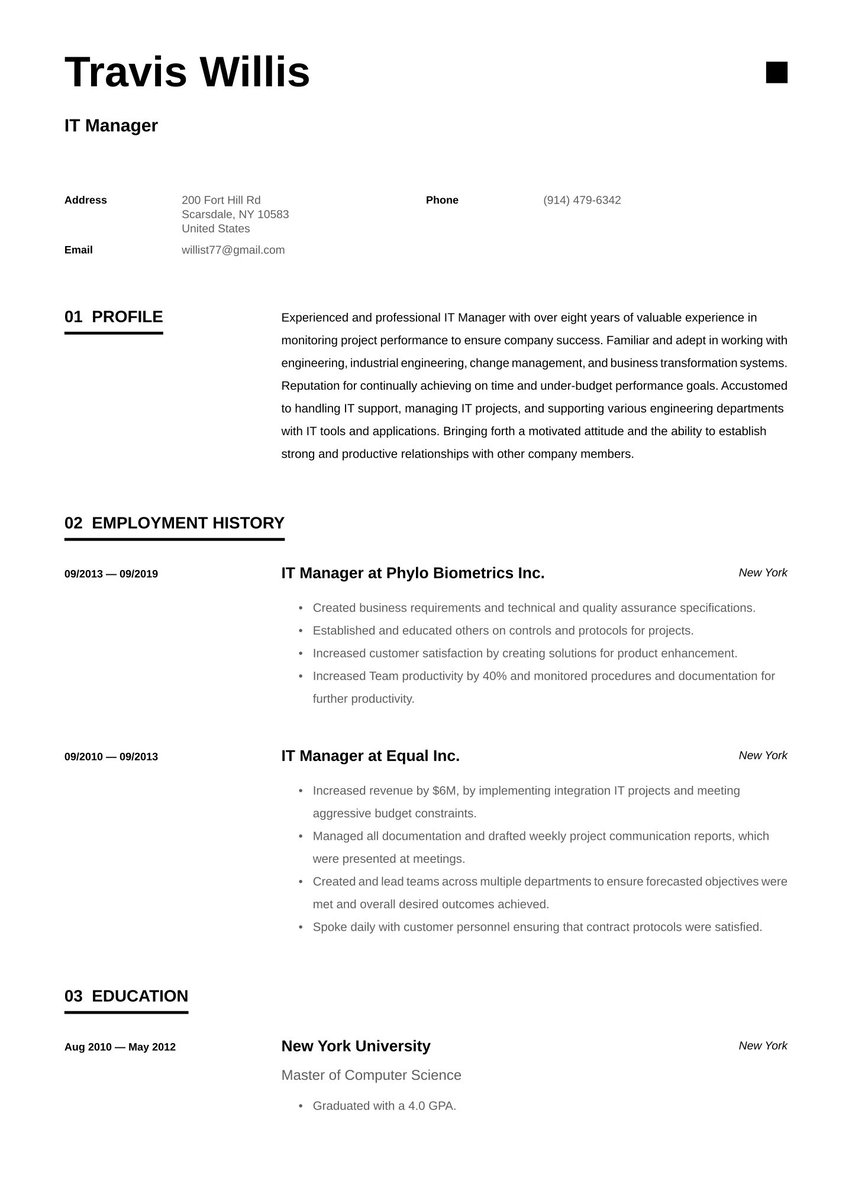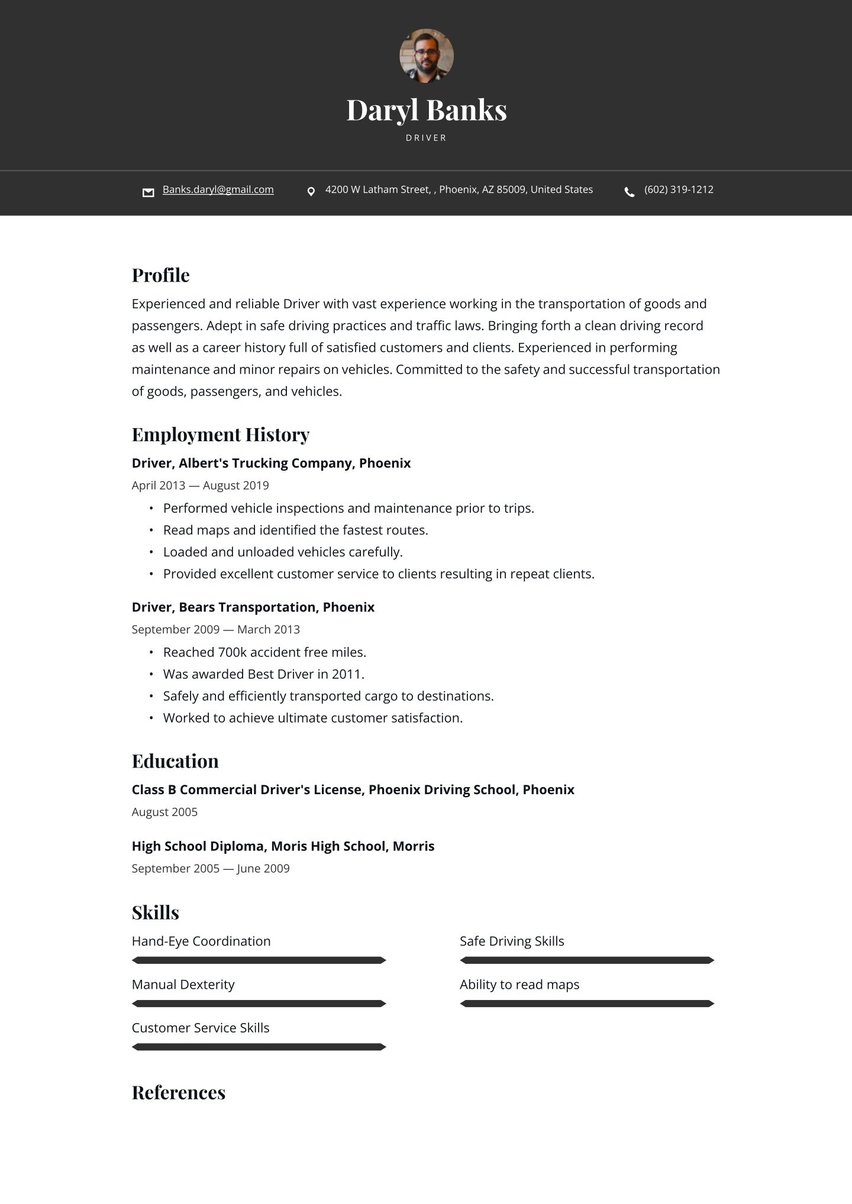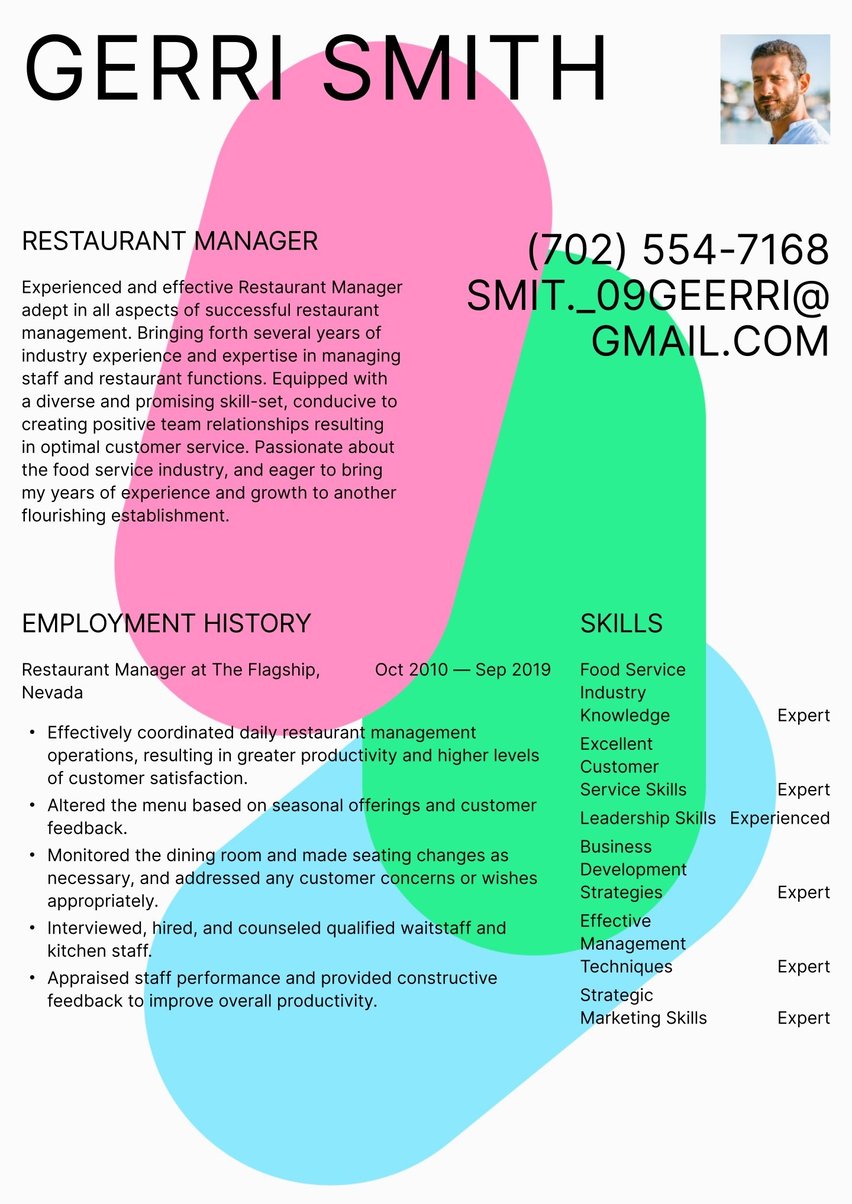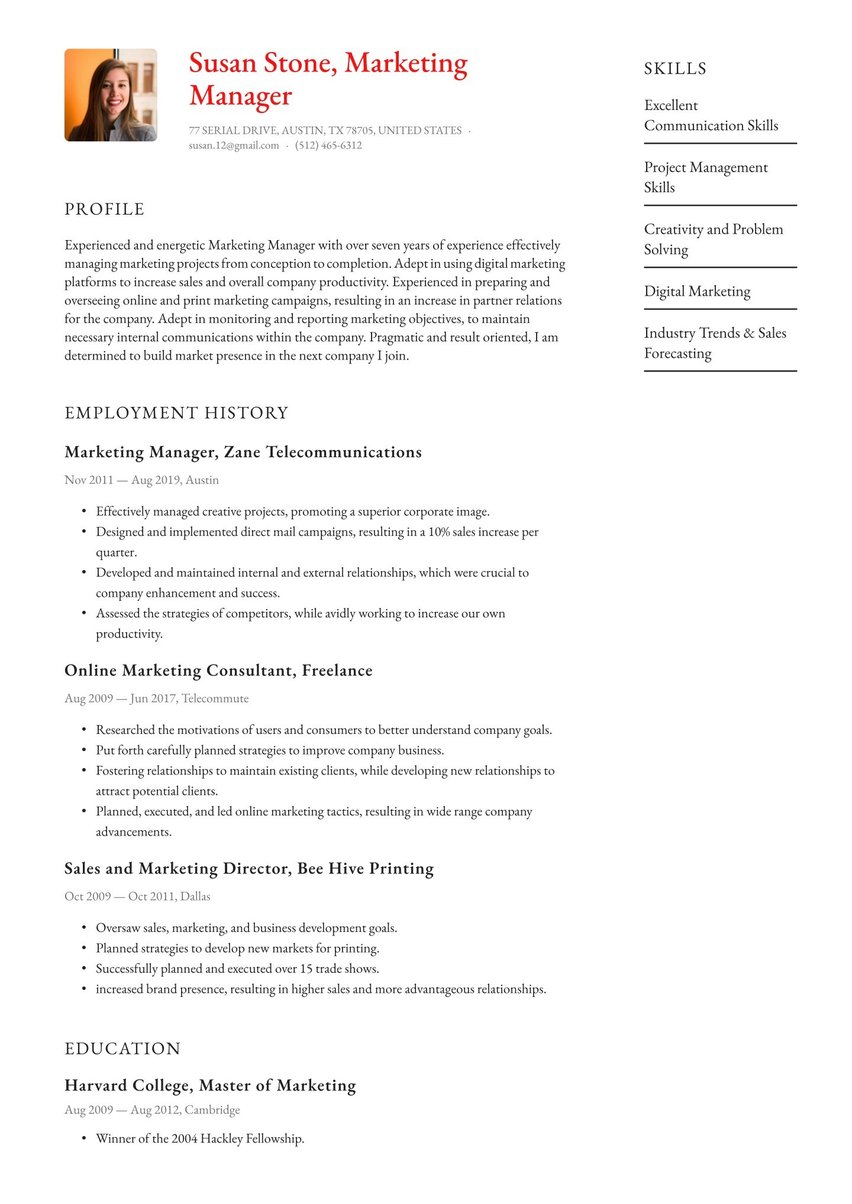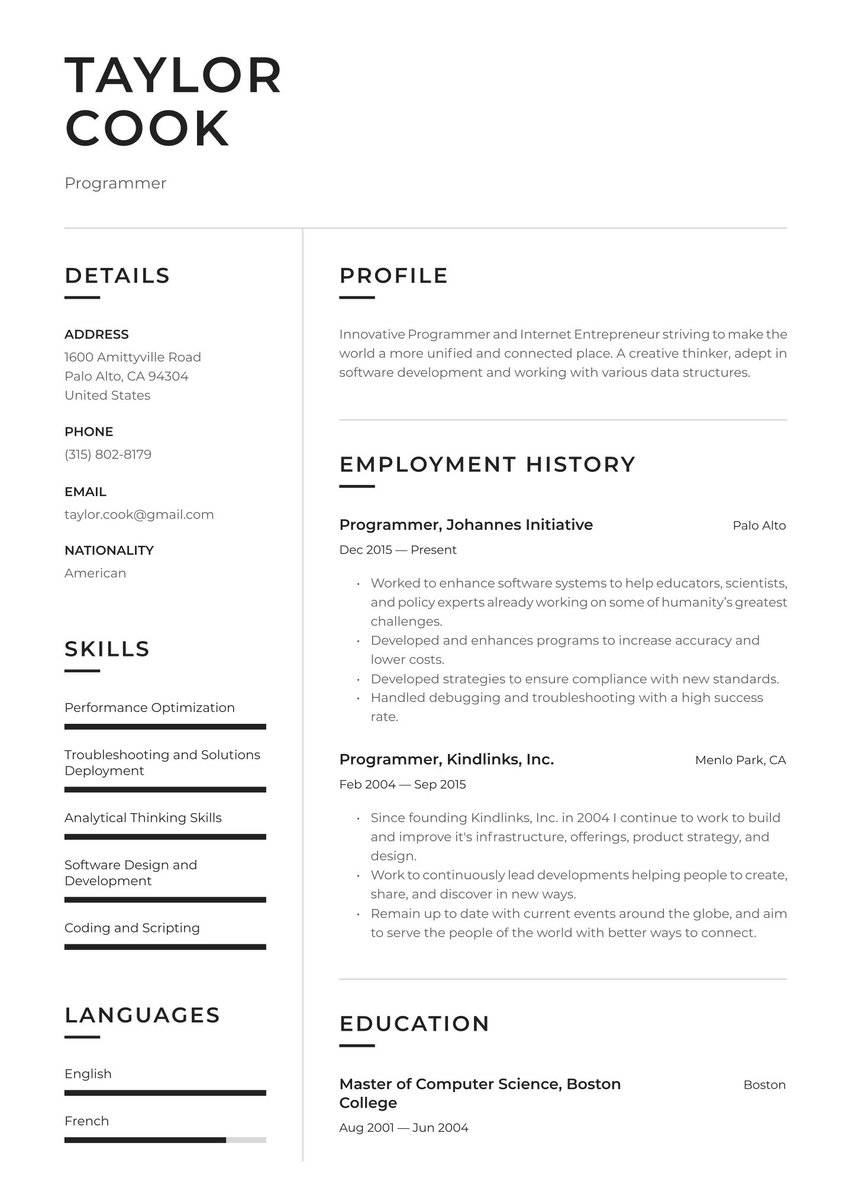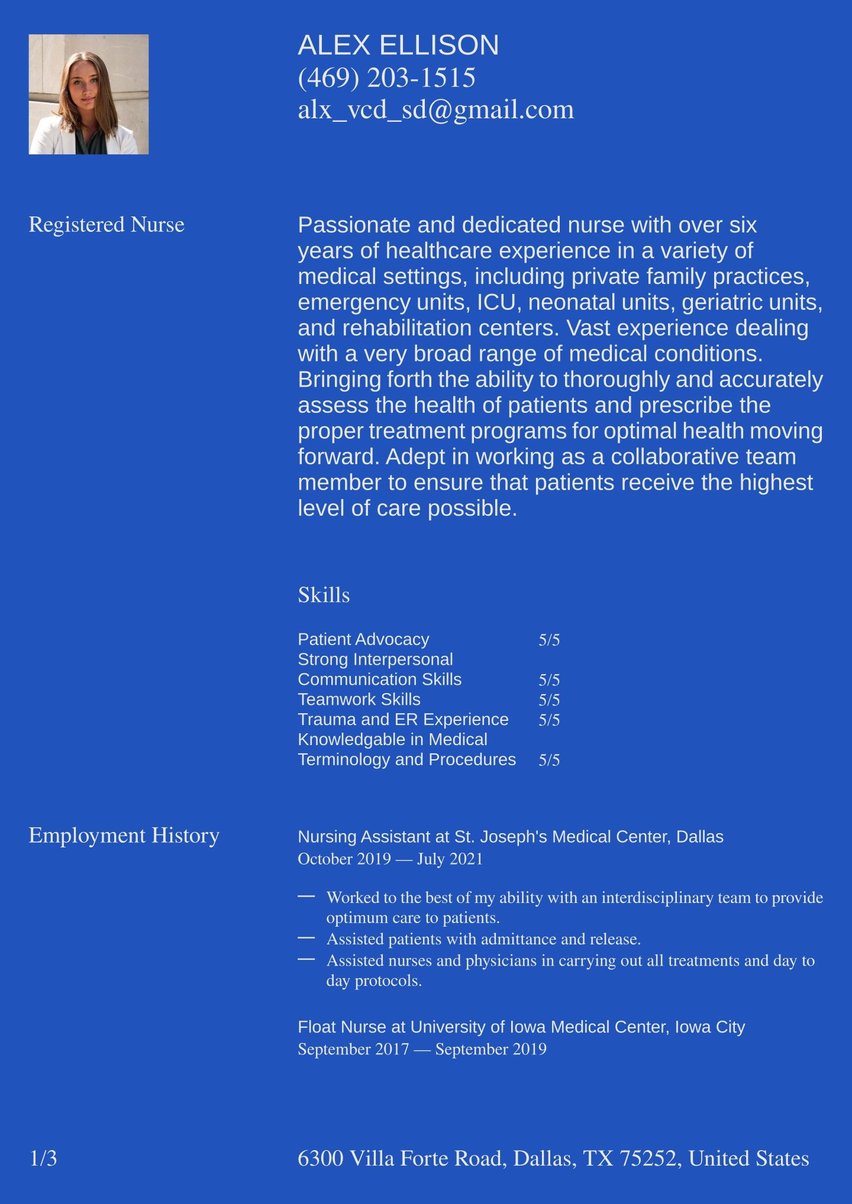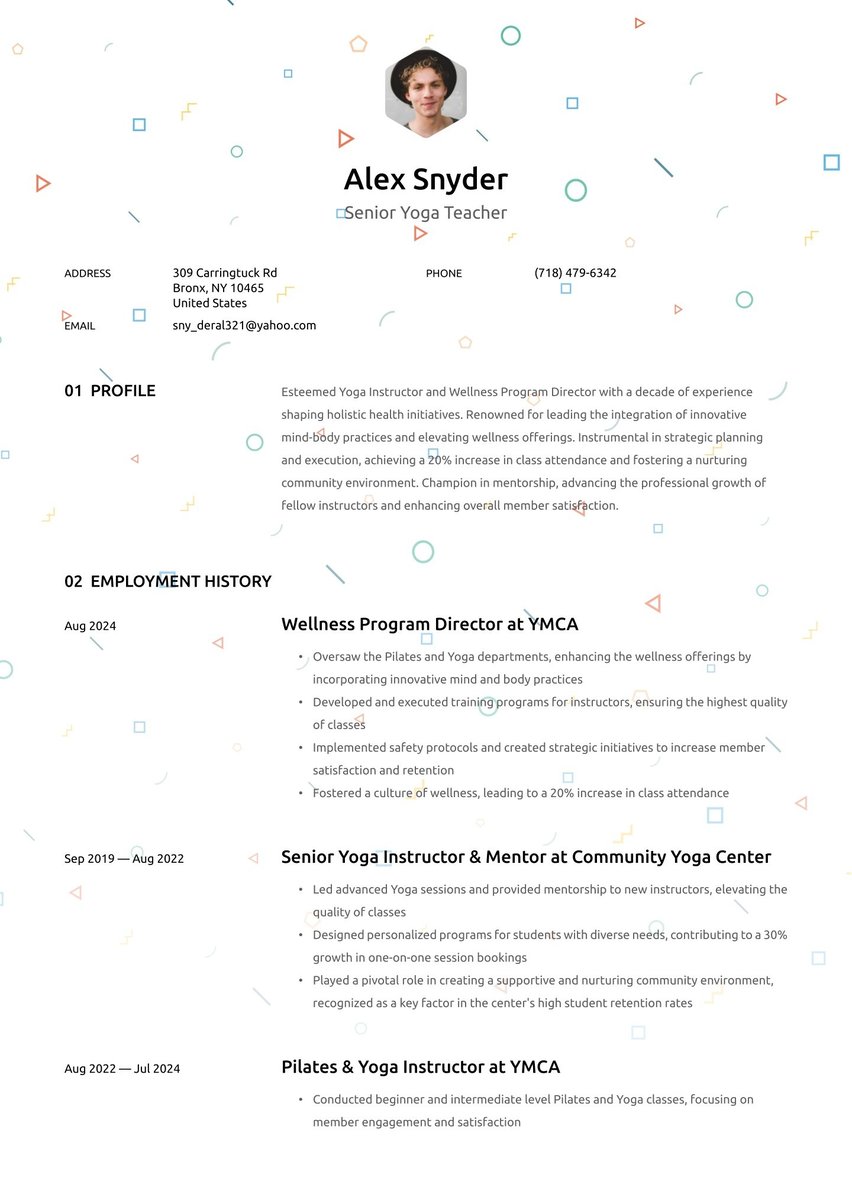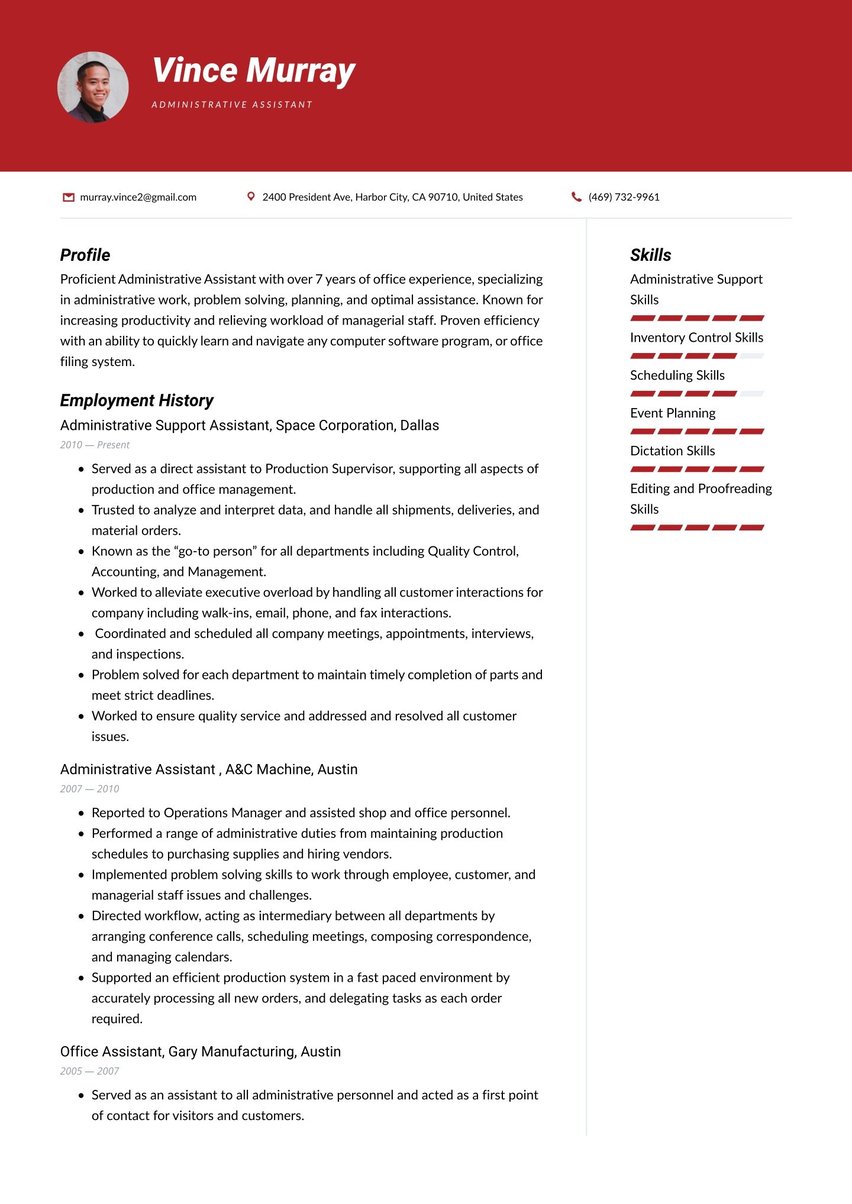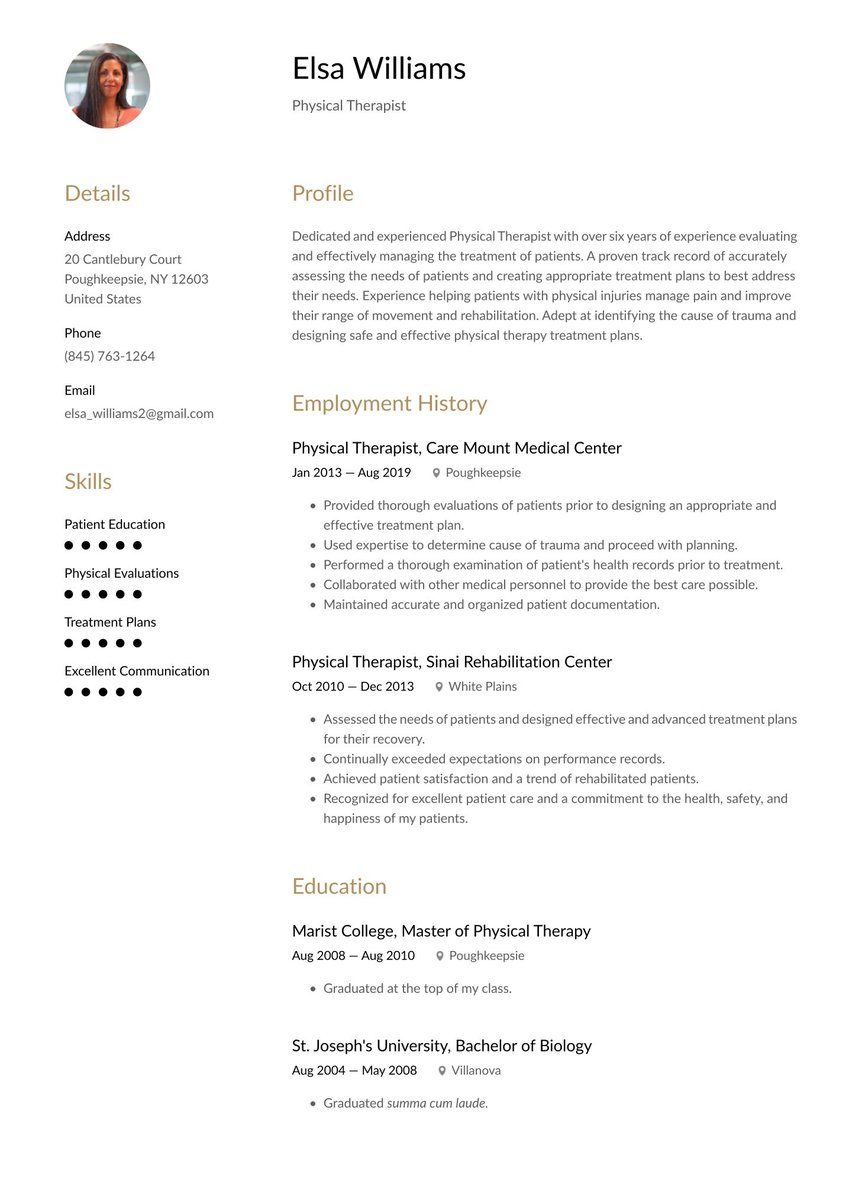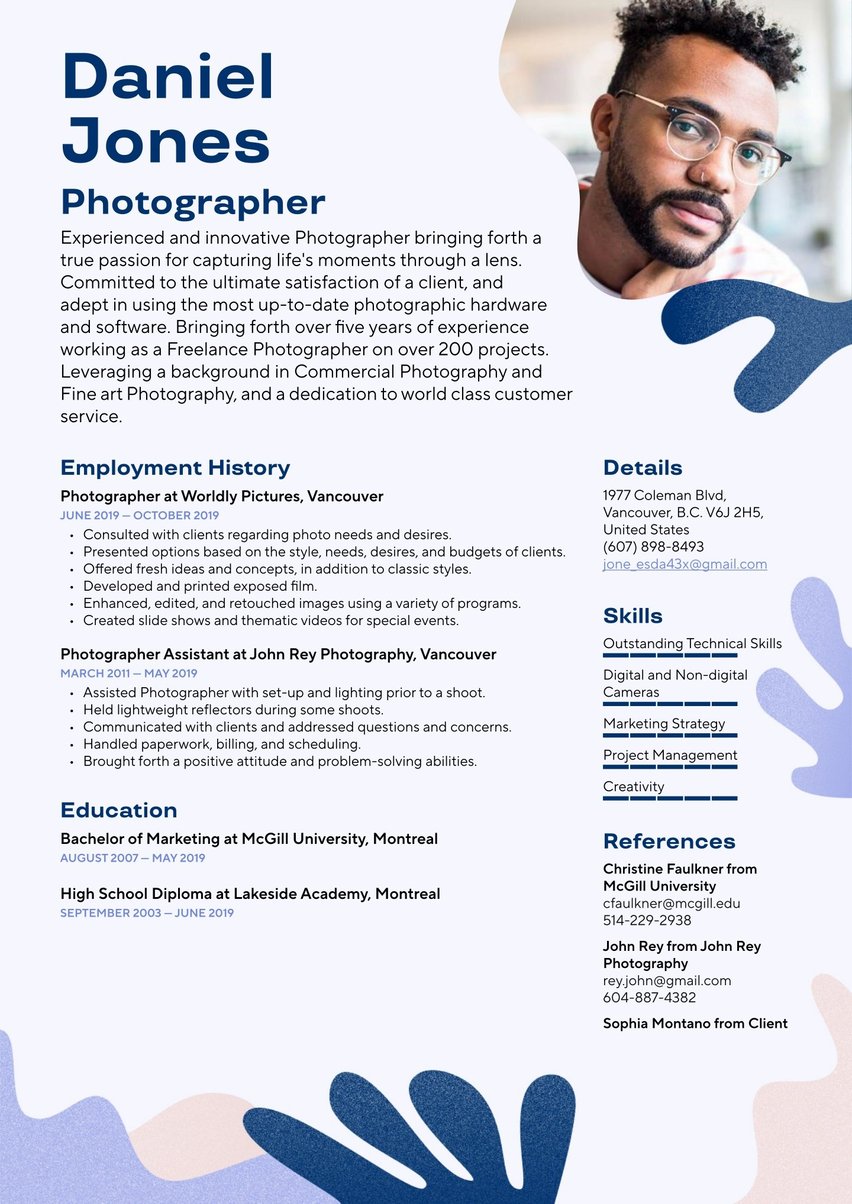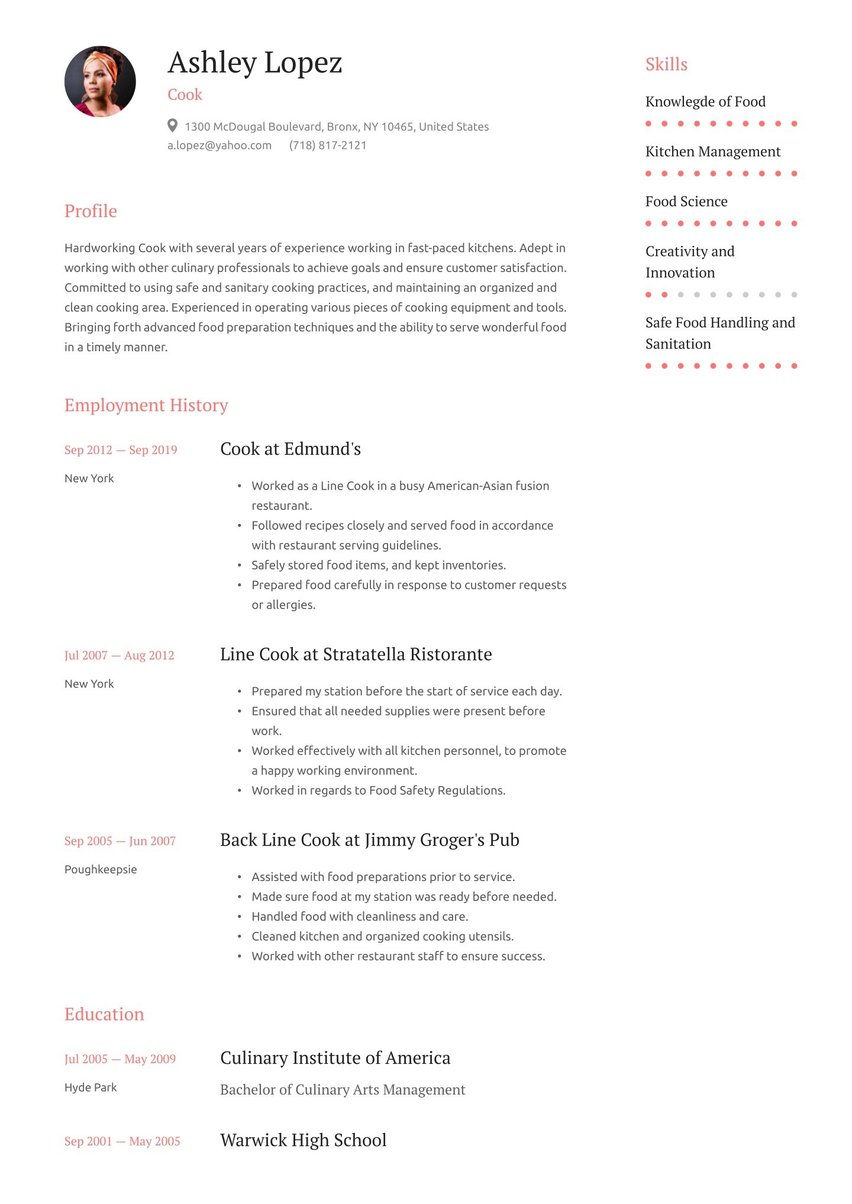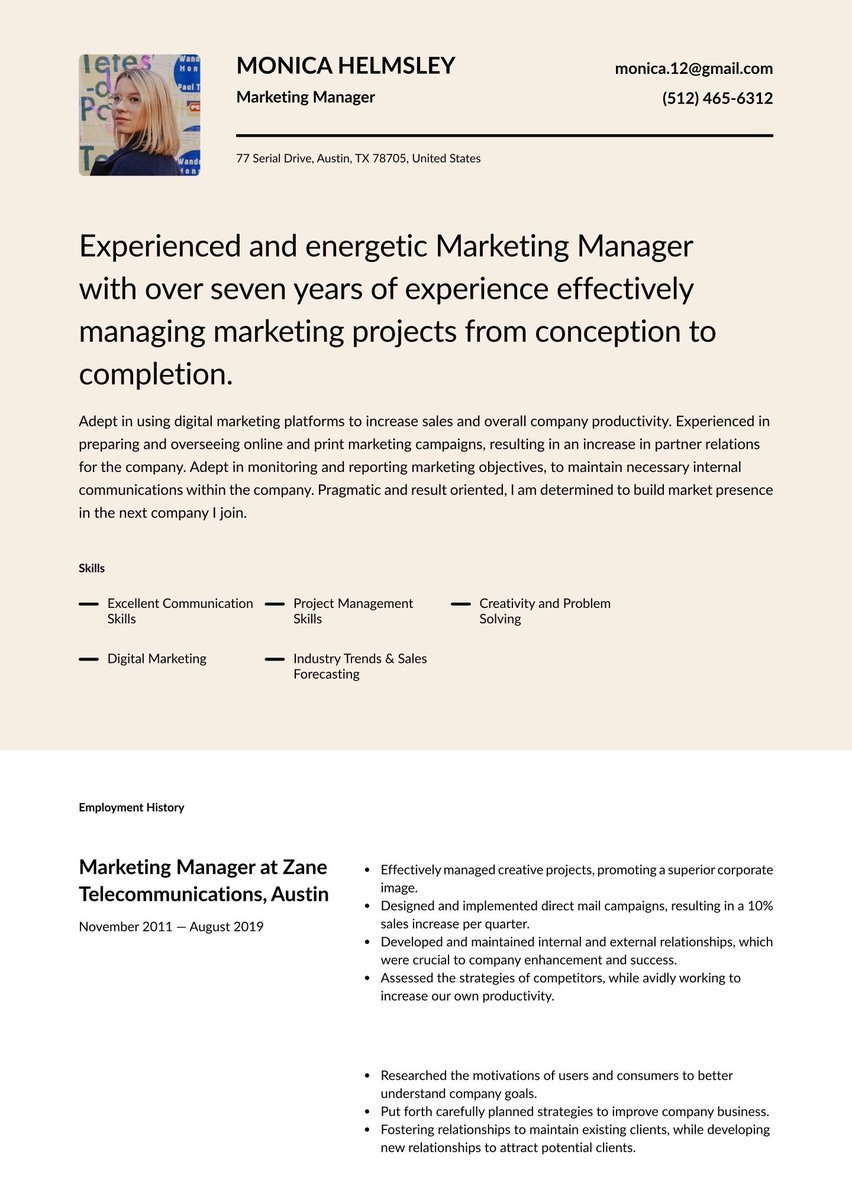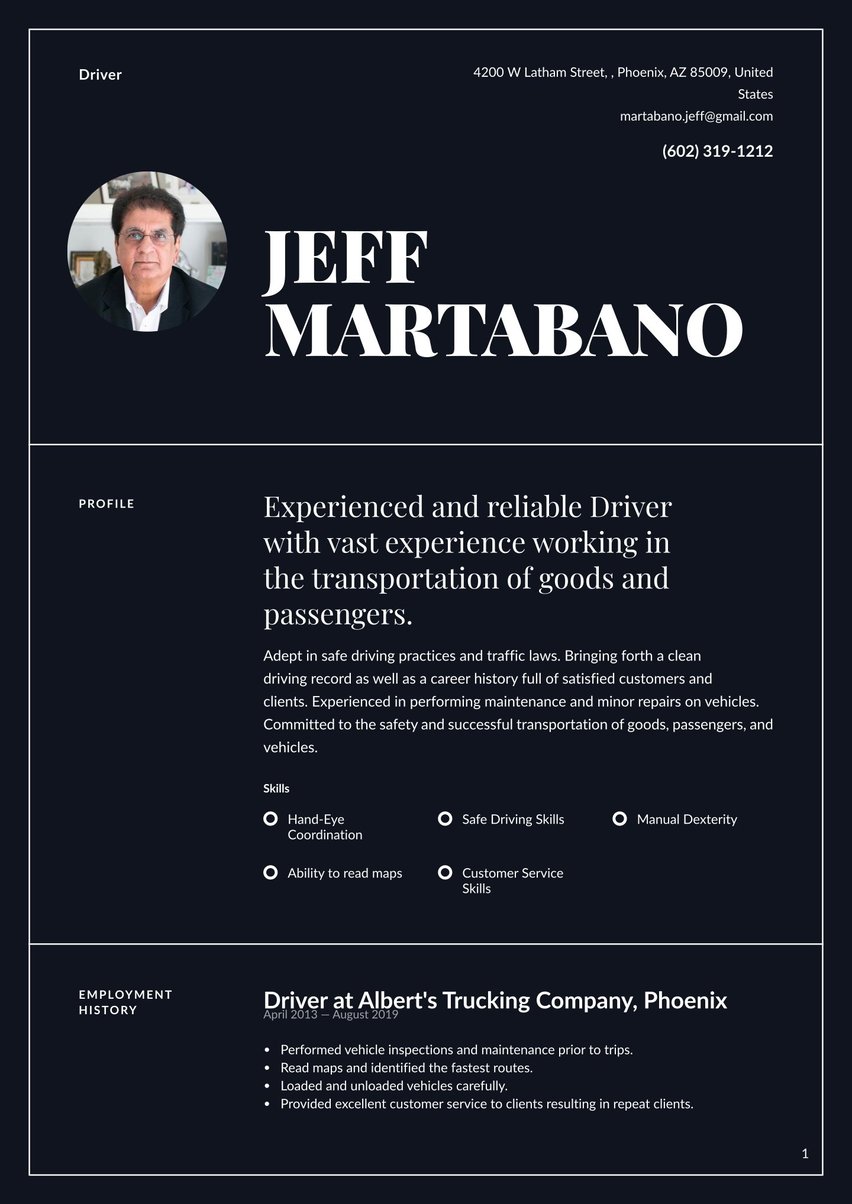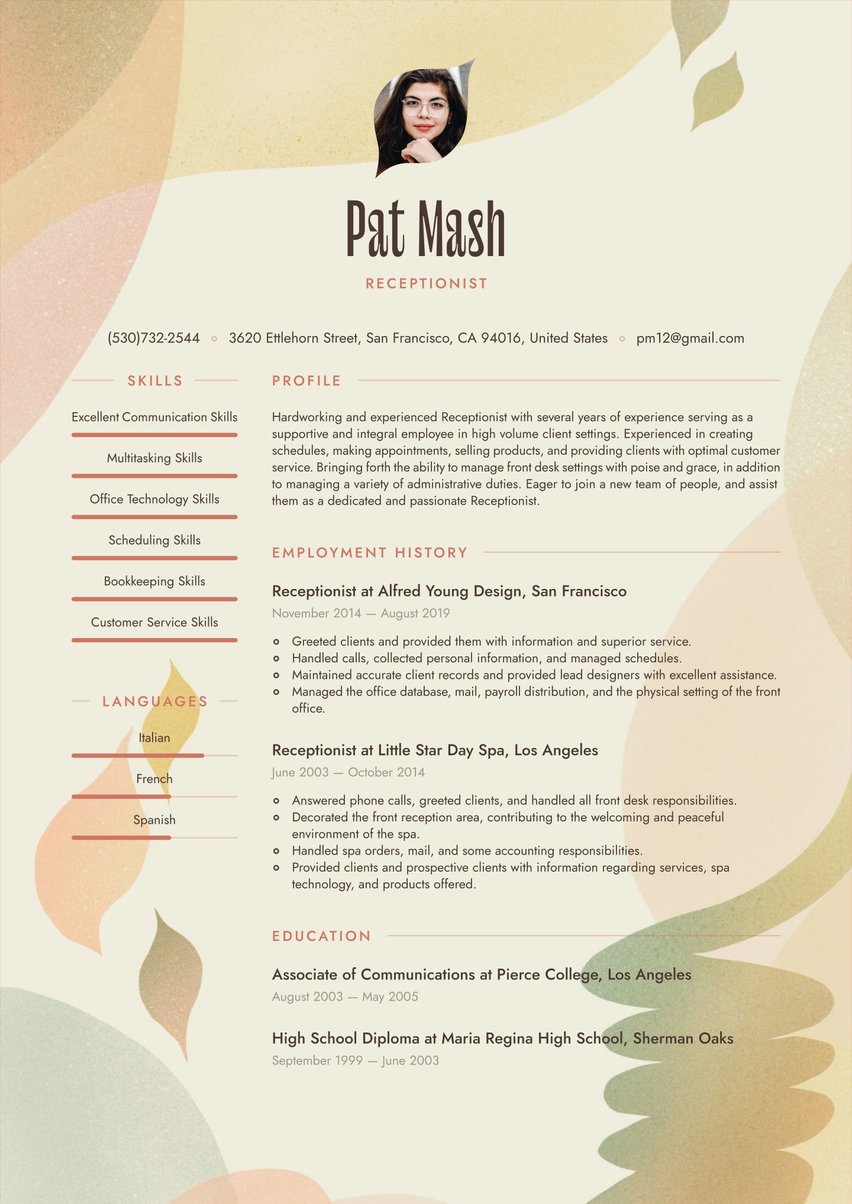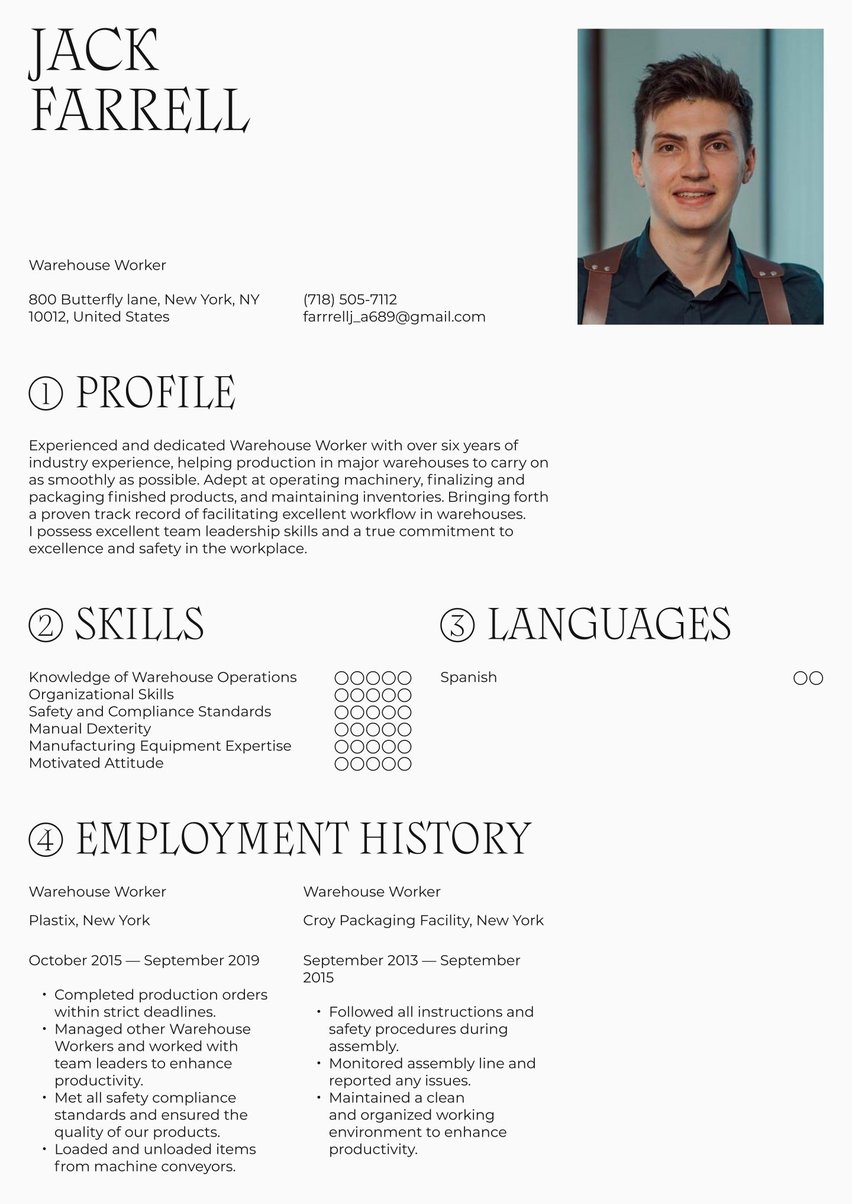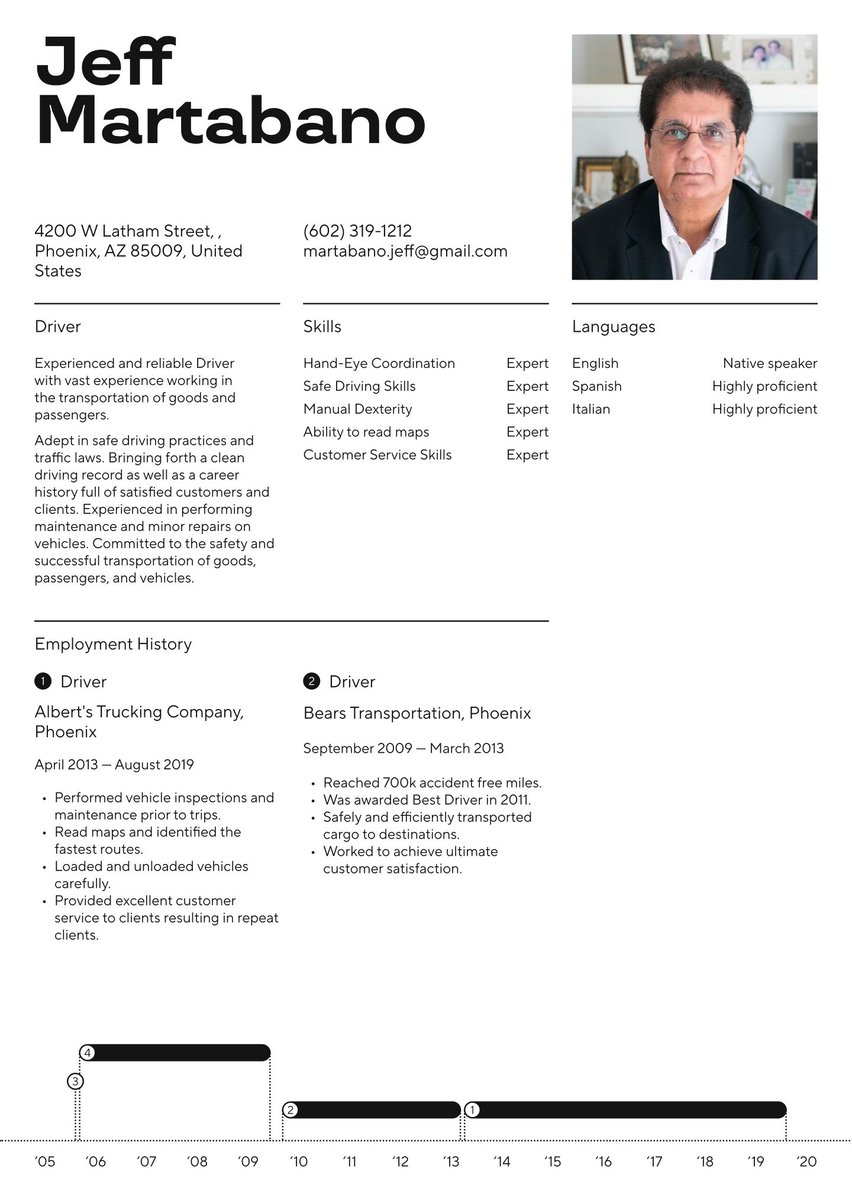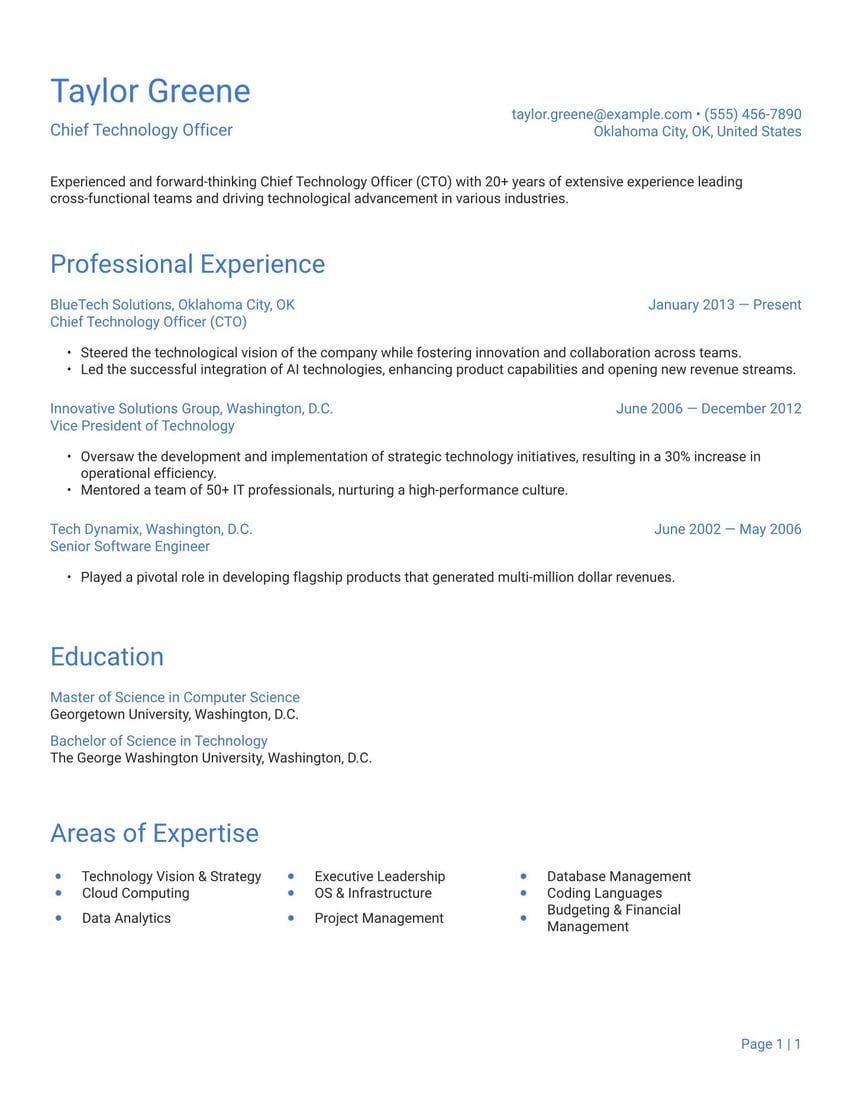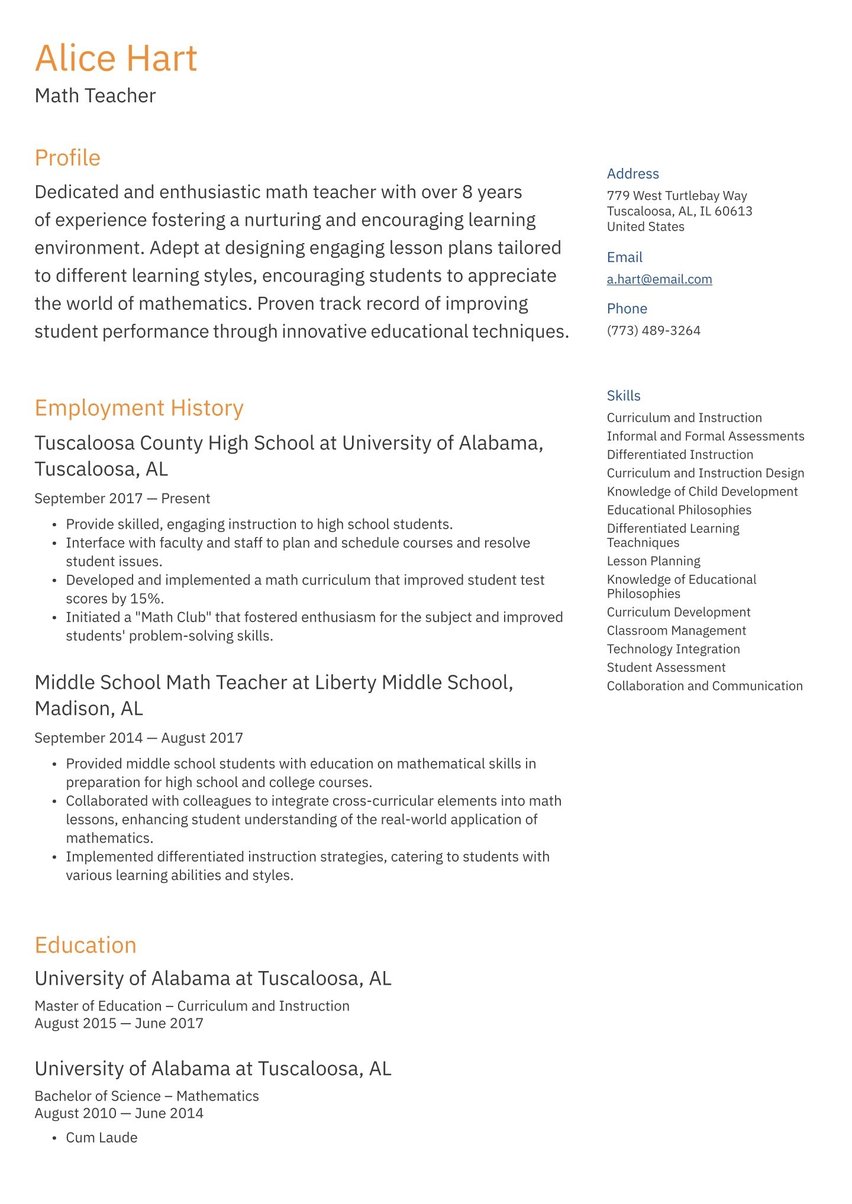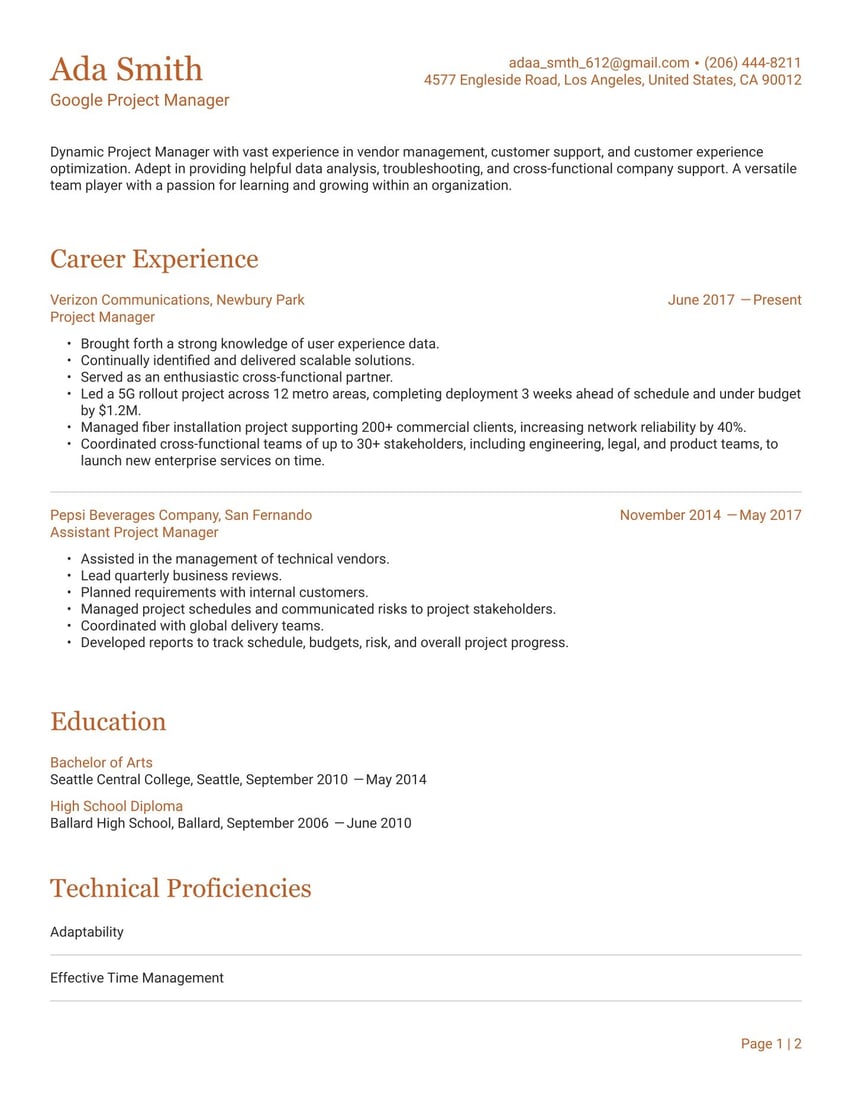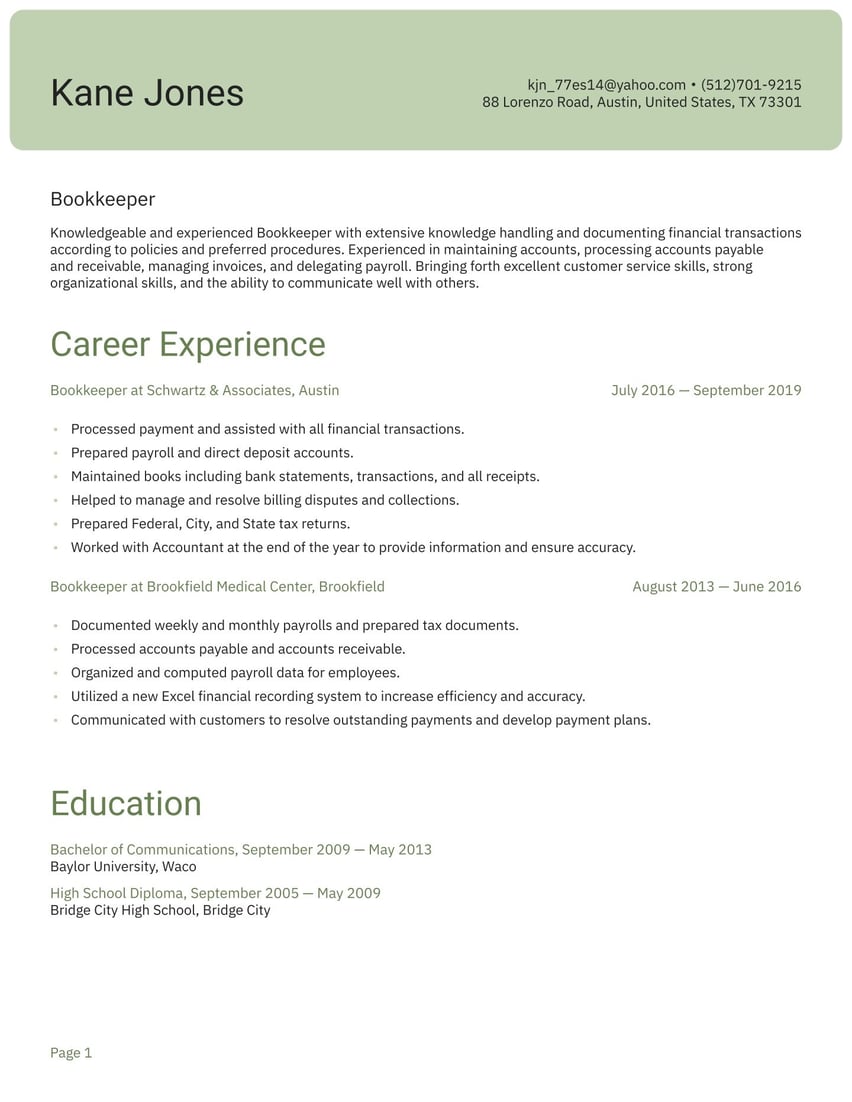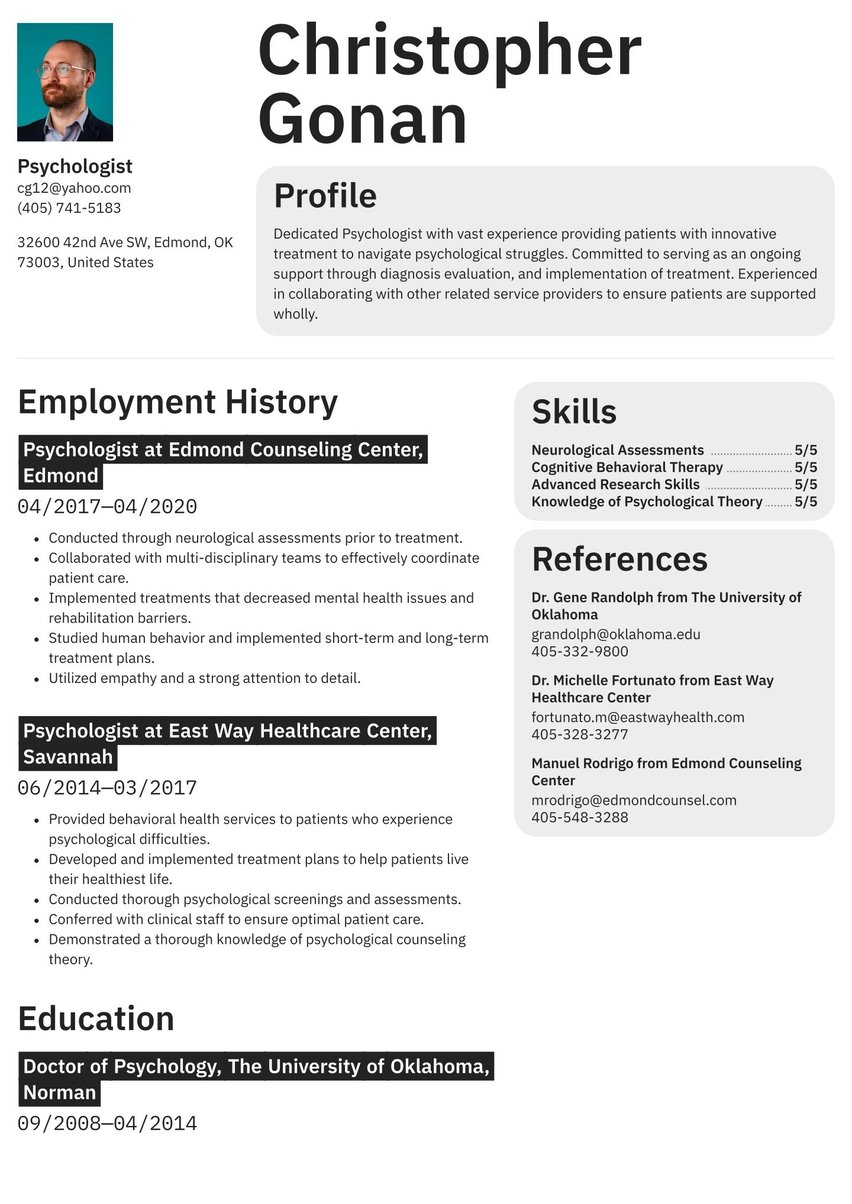10/2016 - present, Social Media Manager, Barrio Brewing Co, Tucson
- Developed & coordinated tasting room events via social media.
- Managed various social accounts to maintain brand awareness.
- Oversaw new product shoots for instagram posts.
- Interacted with customers, employees, and vendors on a daily basis.
- Aimed to increase product awareness, attract new customers, and retain existing customers.
03/2014 - 10/2016, Social Media Manager, Nuanced Media, Tucson
- Developed social accounts and set up content calendars for new clients.
- Recorded data regarding website traffic and user feedback.
- Assisted with management of client presence on varying social media platforms.
- Created inforgraphics and images for client blogs and Facebook accounts.
09/2010 - 05/2014, Bachelor of Marketing, University of Arizona, Tempe
GPA: 3.92
Phi Sigma Pi National Honor Fraternity Member
09/2006 - 06/2010, High School Diploma, Sedona High School, Sedona
- Spanish
- Content Research & Development
- Social Media Management
- Photography and Graphic Design
- Adobe Creative Suite
- Business Development Strategies
As a social media manager, you’re the online voice of a company. When applying for this role, you need to show an employer that you’d be a good representative of their brand.
Social Media Manager resume examples by experience level
Your social media manager resume should highlight your creativity and communication skills. If you can’t concisely describe your worth on a resume, it will be tough to convince a potential employer that you can compose an attention-grabbing post on Facebook, X, or Instagram.
With a well-written resume, however, you can define your value and get an employer to “like” your resume—and contact you for an interview!
Resume guide for a social media manager resume
Resume.io can help you craft a job-winning resume that reflects your professional mastery of words.
We’ve developed over 500 occupation-specific writing guides and resume examples, and our easy-to-use resume builder can bring you one step closer to your next career move.
This social media manager resume guide and example will go over:
- How to write a resume that goes viral for the right reasons
- The best resume format for social media managers
- How to include your contact information
- Advice for creating a captivating summary
- How to highlight your creative and analytical experience
- Guidelines for describing your education and relevant skills
- How to choose a resume design and layout
- An overview of the social media management market, including average pay
How to write a social media manager resume
Your social media manager resume should follow a professional resume structure, which includes these components:
- A resume header
- A resume summary (also known as a profile or personal statement)
- An employment history section
- A resume skills section
- An education section
When you’re vying for attention on a crowded social media platform, you can find success by tailoring messages to your target audience.
You should do the same on your resume. Stand out from the crowd by highlighting your value and showing a company the outcomes you can deliver.
Follow these tips to convert a hiring manager into a fan:
- Understand the specifics of the market. Social media trends, algorithms, and best practices change frequently, so employers want to make sure you have a strong grasp of the current market. Describe your industry experience and explain how you’ve adjusted strategies or campaigns to deliver optimal outcomes.
- Know the company’s social strategy. Do your research and analyze the company’s social media strategy and online presence. Does it struggle to get engagement on posts, or does its follower count lag behind competitors? Use this knowledge to your advantage and explain how you can help with specific problems or pain points.
- Emphasize your accomplishments. Anyone can say they’ve managed different platforms and created content for audiences. Set yourself apart by emphasizing the achievements you’ve had in your other roles, such as increasing engagement or driving website traffic.
- Include relevant keywords. Review the job description and use keywords on your resume to beat an applicant tracking system (ATS).
Build an ATS-friendly resume
ATS software screens, ranks, and filters resumes by searching for specific keywords. If you understand how the ATS works, you have a better chance of getting your resume into the hands of the hiring manager.
For example, consider a job posting with these keywords:
- Content strategy
- Brand awareness
- Analytics
- Campaign management
If you’re applying for this job, you can incorporate those keywords into your resume summary, like this:
Dynamic social media manager with over eight years of experience developing content strategies that boost brand awareness. Skilled in social media campaign management with a proven record of leveraging analytics to drive growth and create natural engagement.
For more help, read our article on resume ATS optimization.
Choosing the right resume format for a social media manager
The most commonly used resume for a social media manager is the chronological format. Employers expect to see resumes that follow this structure, and it’s widely recognized by ATS software. If you’ve had a straightforward career path in social media marketing, use a chronological format for your resume.
However, if you haven’t followed a linear career progression, you may want to consider another resume format. The functional resume format is suitable for those who have worked independently in contract or consulting roles. Use this format if you want to emphasize skills, projects, or clients over traditional job experience.
In other instances, a hybrid resume structure combining chronological and functional elements makes the most sense. Consider this format if you have gaps in your work history or if your most recent experience is in another field or industry.
No matter which format you choose, your resume should appear clean and polished. Use a modern template that’s easy for a hiring manager to read.
Include your contact information
Just like your social media bio, your resume header should clearly explain who you are and what you do. Present this information at the top of your resume in a professional format.
Includes these elements in your header:
- Full name & title. Provide your first and last name and the title of the role.
- Professional email address. Use an email address with a professional format, such as firstname.lastname@email.com.
- Phone number. List the phone number where an employer can most easily reach you. Don’t forget to create a professional voicemail greeting when you start job hunting.
- Location. For safety reasons, don’t provide your full address. Include only the name of your city and state.
- LinkedIn or other profiles. As a social media manager, it’s important to show your presence on LinkedIn and other platforms. Provide links to your professional (not personal) accounts.
Don’t include:
- Date of birth. Your age is irrelevant, and including it on your resume can potentially result in age discrimination.
- Personal information. Other personal information, like your marital status or driver’s license number, doesn’t belong on your resume.
- Photo or headshot. You don’t need to include your headshot on your resume. However, make sure you’re using a professional headshot on your LinkedIn profile and other social media pages.
Anika Smith, Social Media Manager
a.smith@email.com
(194) 391-4739
Indianapolis, IN
linkedin.com/anika_smith
Anika Smith, Social Media Guru
bestdogmom42@email.com
(194) 391-4739
1234 Maplewood Drive
Indianapolis, IN 46202
Age: 46
Make use of a summary section
Typically, you have limited space to convey your message on social media. Your resume summary, sometimes called a profile or personal statement, shows an employer how well you can craft a concise, engaging message.
In a few sentences, succinctly describe your value as a social media manager. Highlight your best skills and your industry expertise, including successful campaigns you’ve managed. Emphasize other unique qualifications you have, such as a certification you’ve earned or an award you’ve won.
With a summary, your goal is to make a hiring manager think, “Wow, I wish someone could do that for our company.” By piquing their interest, they’re more likely to look closely at your application and follow up with you for an interview.
You can also use the resume summary to showcase your personality. An authentic summary can make a bigger impression than a run-of-the-mill statement loaded with keywords. The best social media managers show the humanity of their brands. Do the same with your resume summary.
Want some more inspiration for a well-crafted summary? Check out our related resume examples:
Below are three social media manager resume example summaries you can customize, depending on your level of experience.
Creative and driven social media specialist with a strong foundation in content creation across various platforms, including Facebook, X, TikTok, and Instagram. Experienced in developing content calendars and creating posts to spur engagement among audiences of 100,000+.
Results-oriented social media manager with over five years of experience creating and executing strategies for hospitality businesses. Skilled in using analytics tools to identify opportunities for growth, resulting in a 42 percent increase in followers. Proven record of overseeing multi-channel campaigns and collaborating with marketing teams to achieve consistent brand growth.
Strategic social media manager with 10+ years of experience in driving social media initiatives for global brands. Able to develop data-driven content strategies to produce tangible business outcomes, including an average 16% increase in social traffic. Extensive experience in influencer partnerships, brand messaging, and analytics, with a track record of measurable results across platforms.
Outline your social media management experience: share your brand story
The employment history section of your social media manager resume will showcase your ideas, projects, and deliverables. But it also needs to put your work into context with data and outcomes.
Lead with your most recent job experiences to show you’re up-to-date with the latest social marketing trends. Match elements of your experience to the requirements of the job you’re applying for.
If the job description asks for candidates who are comfortable creating TikTok videos, for example, tailor your resume to reflect your video creation skills.
Make sure your resume bullet points focus on outcomes, not just job duties. A hiring manager’s eyes may glaze over if they start reading bullet points like these:
- Developed social media posts for target audiences
- Monitored interactions and responded to comments in a timely manner
- Conducted audits to evaluate social media performance
You’re likely to find these statements on every social media manager’s resume. These statements won’t catch an employer’s attention, because they’ve probably seen them before. Instead, stress the outcomes of the campaigns you’ve run.
Illustrate your impact with numbers and percentages in different areas, such as audience growth, engagement rates, lead generation, and brand awareness.
Here are some reworked versions of the above bullet points that focus on results, not just responsibilities:
- Increased social media engagement by 36% within six months through targeted content strategies across multiple channels
- Promoted positive brand awareness by interacting with online followers, responding to all messages and inquiries within 24 hours
- Improved social traffic by 18% and contributed to a 48% increase in lead conversions by leveraging data from quarterly audits
Look at the adaptable resume employment section below for more inspiration:
Social Media Manager at Barrio Brewing Co, Tucson
October 2016 - Present
- Developed & coordinated tasting room events via social media.
- Managed various social accounts to maintain brand awareness.
- Oversaw new product shoots for instagram posts.
- Interacted with customers, employees, and vendors on a daily basis.
- Aimed to increase product awareness, attract new customers, and retain existing customers.
Social Media Manager at Nuanced Media, Tucson
March 2014 - October 2016
- Developed social accounts and set up content calendars for new clients.
- Recorded data regarding website traffic and user feedback.
- Assisted with management of client presence on varying social media platforms.
- Created inforgraphics and images for client blogs and Facebook accounts.
Include your key skills relevant to being a social media manager
On your resume, you should align your skills to the job you’re targeting. Companies may ask for social media managers with varying skill sets. By tailoring your skills, you can show a hiring manager why you’re right for the job.
Your resume should contain a good mix of hard and soft skills. Hard skills, such as content creation and brand messaging, prove you’re capable of delivering results for an organization.
At the same time, social media managers can use their behavioral traits, such as persuasion, empathy, and creativity, to engage with followers and serve as the brand’s voice.
Our resume builder allows you to choose from pre-written skills and indicate your proficiency with each. You can also add other skills to your resume.
Here’s what the skills box looks like in our social media manager resume template.
Key Skills and Proficiencies
While your skills section is the obvious place to show your strengths, you should mention your strengths in other areas of your resume, including your summary and experience section.
Here are some good skills to highlight on your resume:
- Analytical skills. Describe how you’ve analyzed the results of social media campaigns to drive growth or improve the return on investment (ROI).
- Collaboration. Explain how you’ve collaborated with other teams or departments, such as sales and business development, to align campaigns with business goals.
- Leadership skills. Discuss how you lead by example in the workplace, persuading stakeholders to get on board with your brand strategy and creative ideas.
Detail your education & relevant social media certifications
Most employers require social media managers to have a bachelor’s degree, so list yours at the top of your resume education section. If you have multiple postsecondary degrees, list them in reverse-chronological order, starting with your highest degree.
In addition, your education section should reflect your ongoing training and development in the field. You don’t need to include every online course you’ve completed or marketing conference you’ve attended in your career. However, make sure this section demonstrates your attitude of self-improvement, so employers know you’re able to keep up with emerging trends online.
For example, your ongoing development may include:
- Certifications. Mention the social media certifications you’ve earned, listing the certifying organization and the date of completion.
- Courses. If you’ve taken courses in social media marketing, include them on your resume to show your commitment to continued learning. You can also include other relevant courses, such as a leadership workshop.
- Professional organizations. Belonging to a professional organization, such as the American Marketing Association, is a great way to learn from others and expand your industry knowledge.
Bachelor of Marketing, University of Arizona, Tempe
September 2010 - May 2014
- Graduated Summa Cum Laude
- GPA: 3.92
- Phi Sigma Pi National Honor Fraternity Member
High School Diploma, Sedona High School, Sedona
September 2006 - June 2010
Pick the right resume layout & design suited for a social media manager
While you might be used to working with a creative blank canvas, your resume should follow a clear structure. Choose a template that’s visually clean, easy to read, and symmetrical. Your achievements can easily get lost if your resume appears cluttered.
As you build your resume, keep in mind that an employer may scan it quickly or jump between sections to find the information they’re looking for. Use bold section headers in a different font or size to guide a hiring manager through your resume.
Additionally, your resume should have a logical flow with minimal distractions. Use white space and bullet points to make it readable. Avoid going overboard with bold graphics or bright colors, but feel free to use certain elements, such as progress bars, to show off your design skills.
If you’re feeling creatively stifled, check out our resume template collection. We offer a wide range of attractive layouts, and you can customize a template to make it your own by using our resume builder tool.
Social media manager text-only resume example
Profile
Innovative and motivated Social Media Manager with vast experience creating content and managing the online presence of companies and brands. Bringing forth experience developing and managing trend-aware social media accounts on various platforms, resulting in an active community of followers. Adept in building engaging campaigns for users that result in higher visitor traffic patterns and greater success.
Employment history
Social Media Manager at Barrio Brewing Co, Tucson
October 2016 - Present
- Developed & coordinated tasting room events via social media.
- Managed various social accounts to maintain brand awareness.
- Oversaw new product shoots for instagram posts.
- Interacted with customers, employees, and vendors on a daily basis.
- Aimed to increase product awareness, attract new customers, and retain existing customers.
Social Media Manager at Nuanced Media, Tucson
March 2014 - October 2016
- Developed social accounts and set up content calendars for new clients.
- Recorded data regarding website traffic and user feedback.
- Assisted with management of client presence on varying social media platforms.
- Created inforgraphics and images for client blogs and Facebook accounts.
Skills
- Content Research & Development
- Social Media Management
- Photography and Graphic Design
- Adobe Creative Suite
- Business Development Strategies
Education
Bachelor of Marketing, University of Arizona, Tempe
September 2010 - May 2014
- Graduated Summa Cum Laude
- GPA: 3.92
- Phi Sigma Pi National Honor Fraternity Member
High School Diploma, Sedona High School, Sedona
September 2006 - June 2010
Social media manager job market & outlook
Social media has become a major part of marketing strategies for many companies. Employment in this field is likely to continue to grow as employers seek to hire people who can capture their brand voice.
- The U.S. Bureau of Labor Statistics expects employment in this field to grow 8% by 2033, faster than the average growth of other occupations.
- About 36,600 job openings are projected each year for advertising and marketing managers, including social media managers.
What type of salary can you expect as a social media manager?
You can make a good salary as a social media manager. The average annual salary for this role is $117,020, though it can vary based on your experience and location. Depending on your employer, you may also earn bonuses in addition to your yearly wage.
Key takeaways for building a social media manager resume
As a social media manager, your voice represents a brand online. Convince an employer you’re the right person for the job with a compelling, impactful resume that sells your skills and experience.
Don’t forget to share how your ideas and projects have produced positive results for other organizations, especially related to engagement and brand awareness.
It’s easy to begin your job search with our resume builder, but you can also take it to the next level with resume.io.
Use 18 career-advancing tools to search for social media manager jobs, monitor your progress, prepare for interviews, and negotiate your salary with confidence. It’s a complete toolkit for your career!


.jpg)

.jpg)










